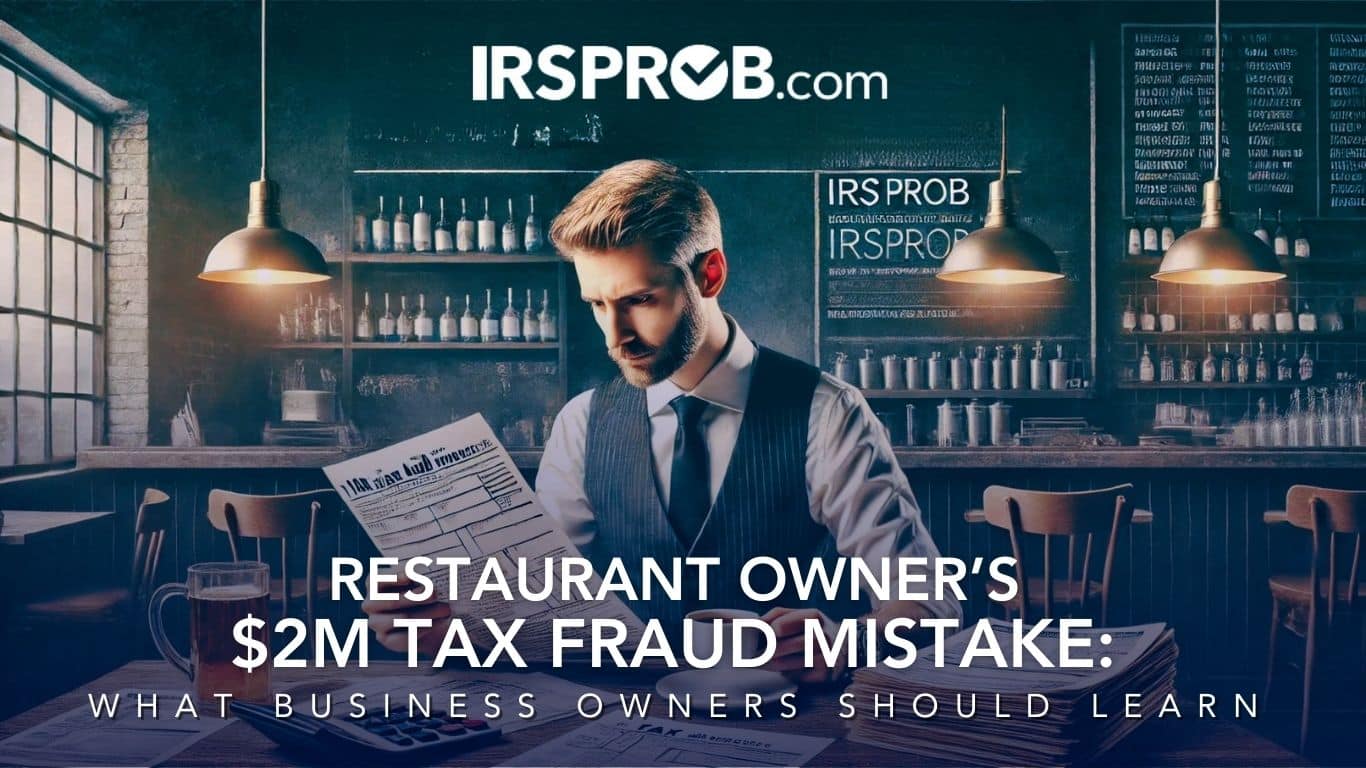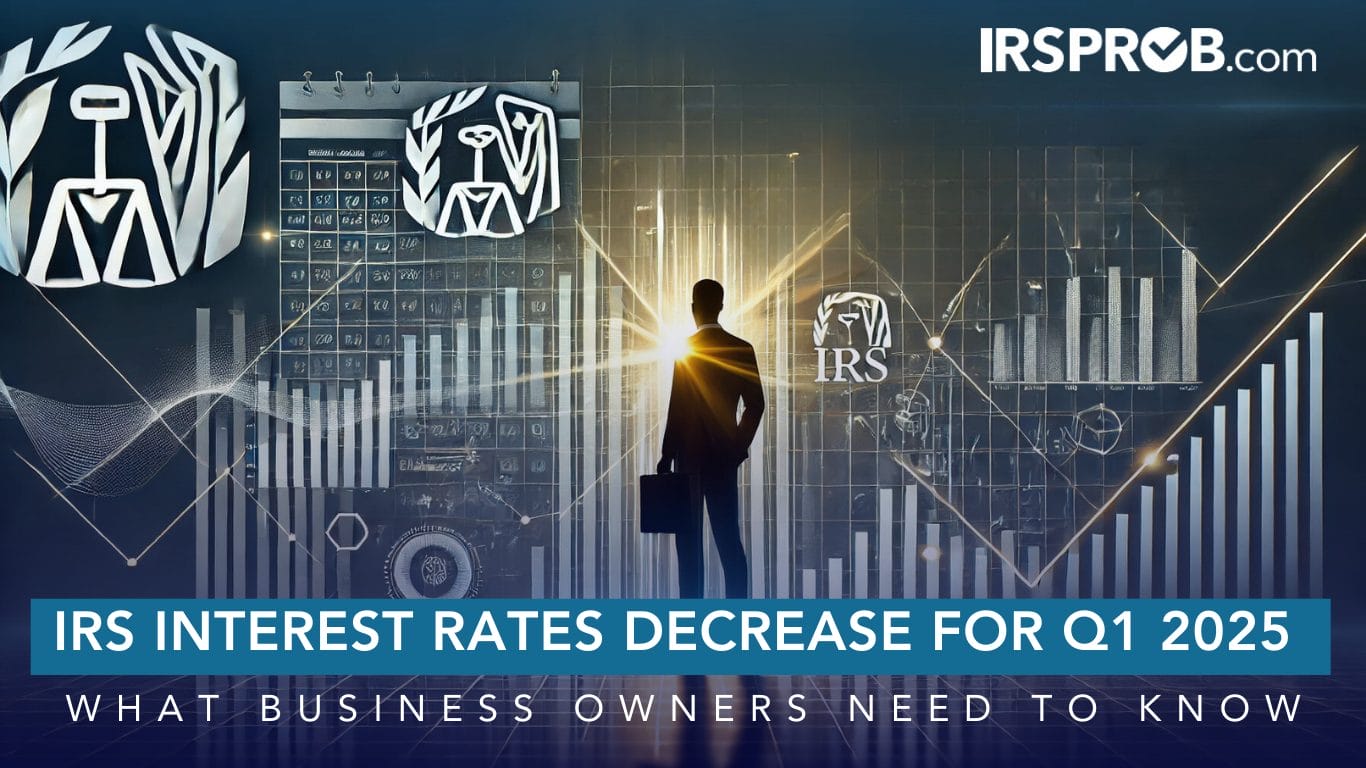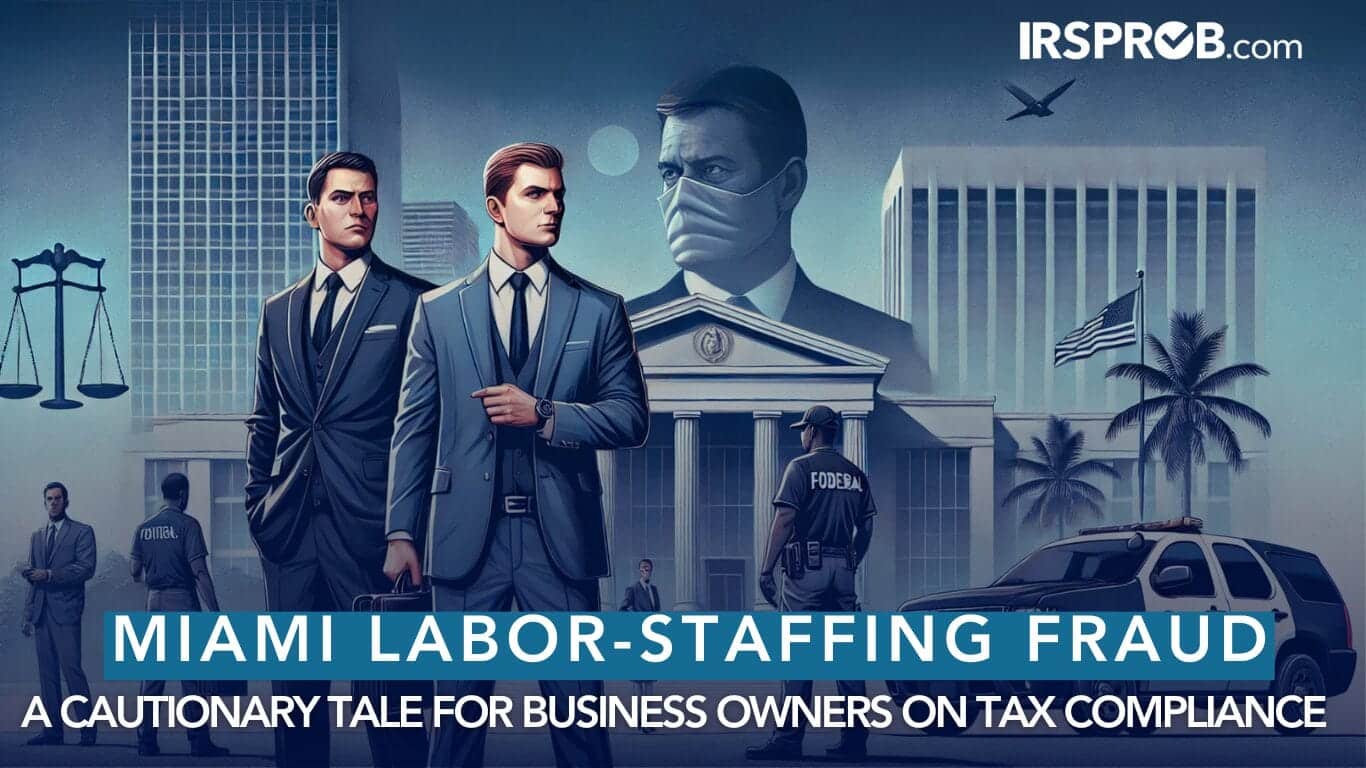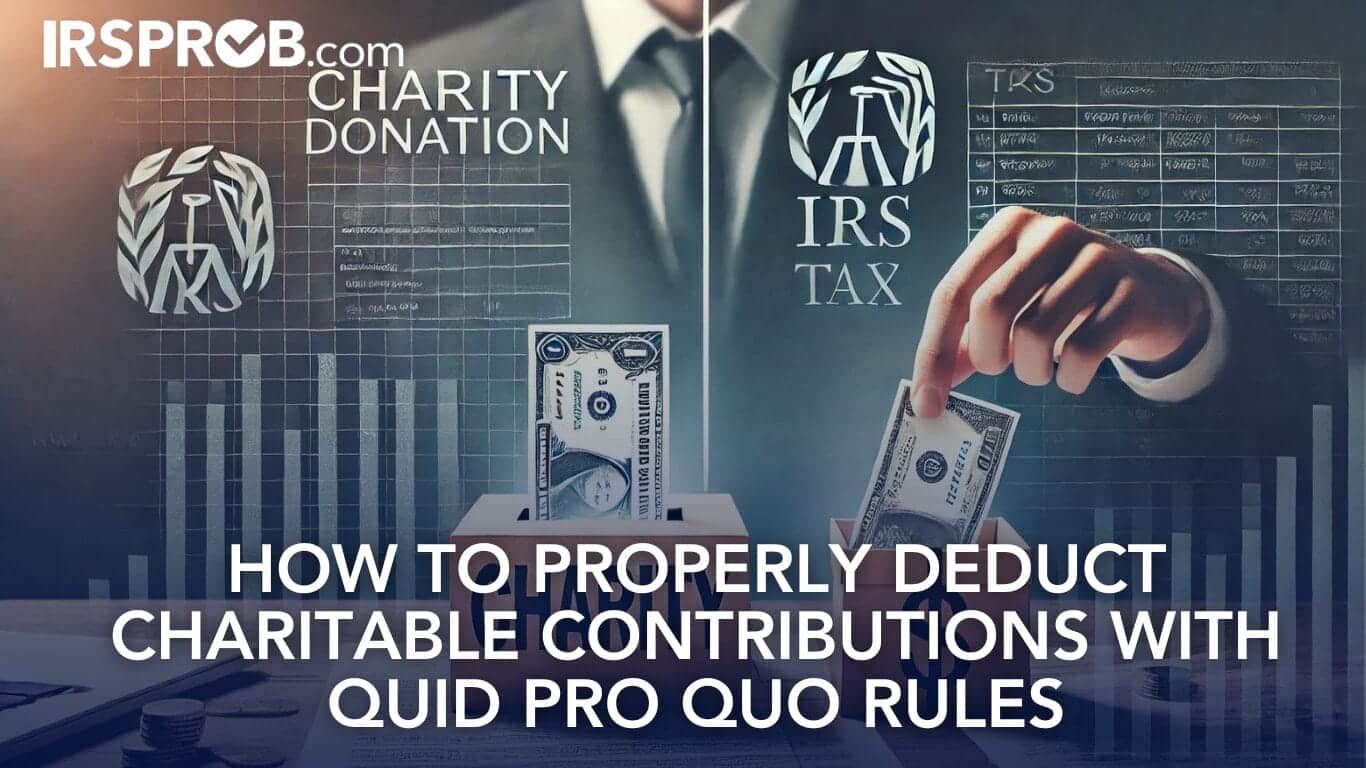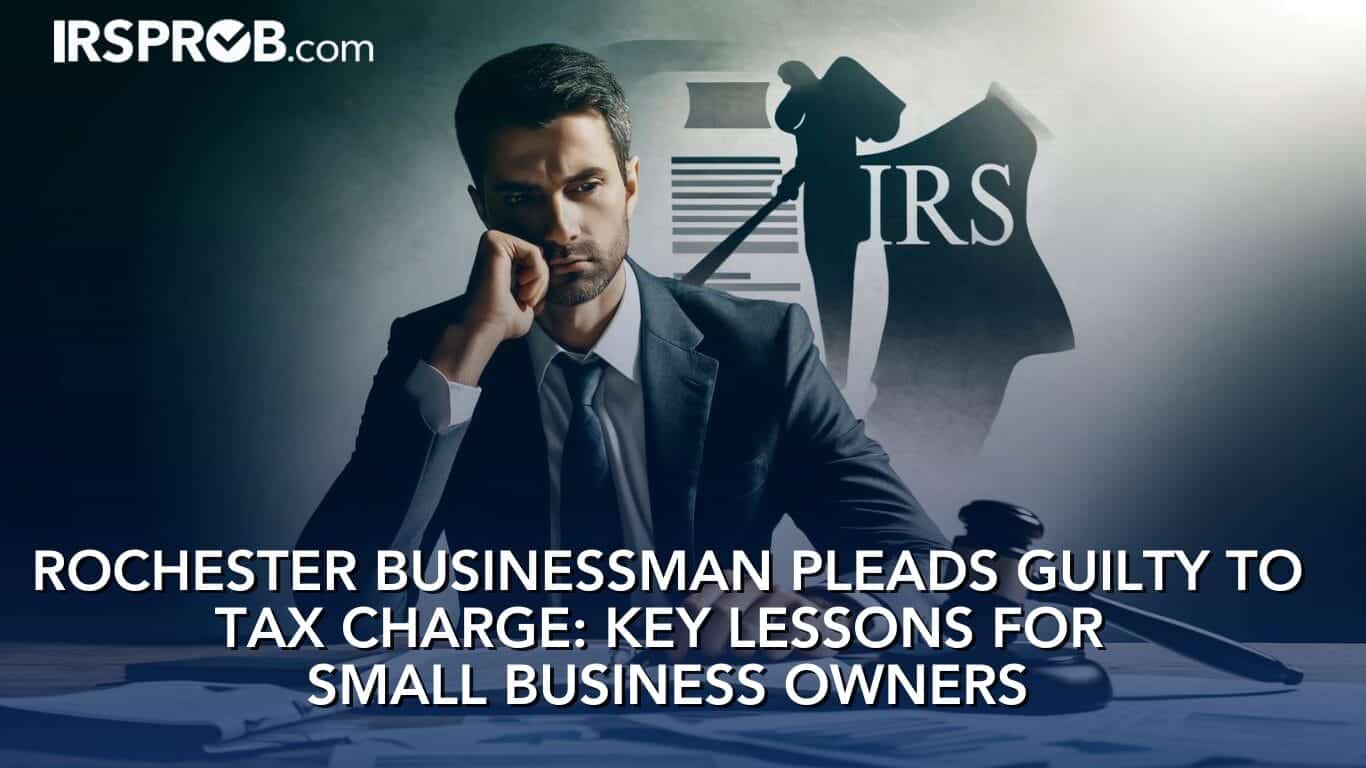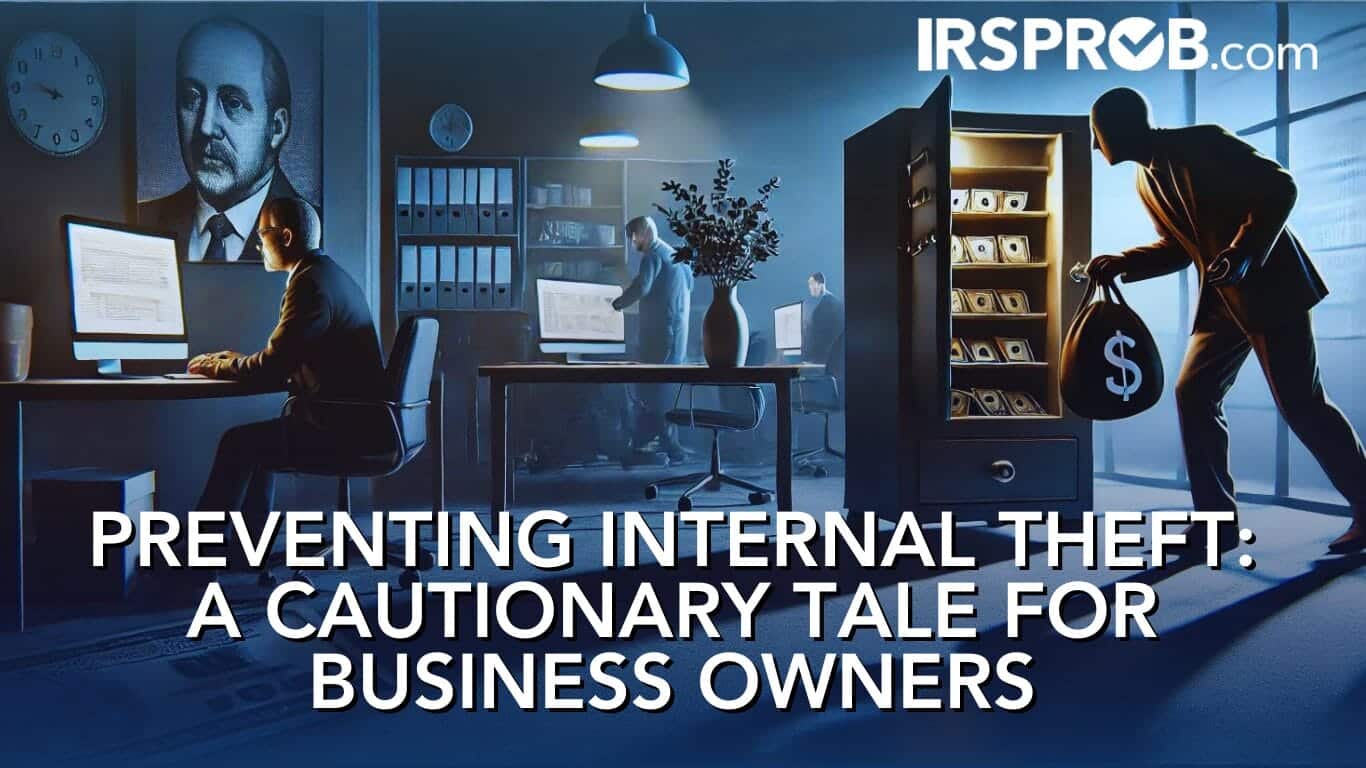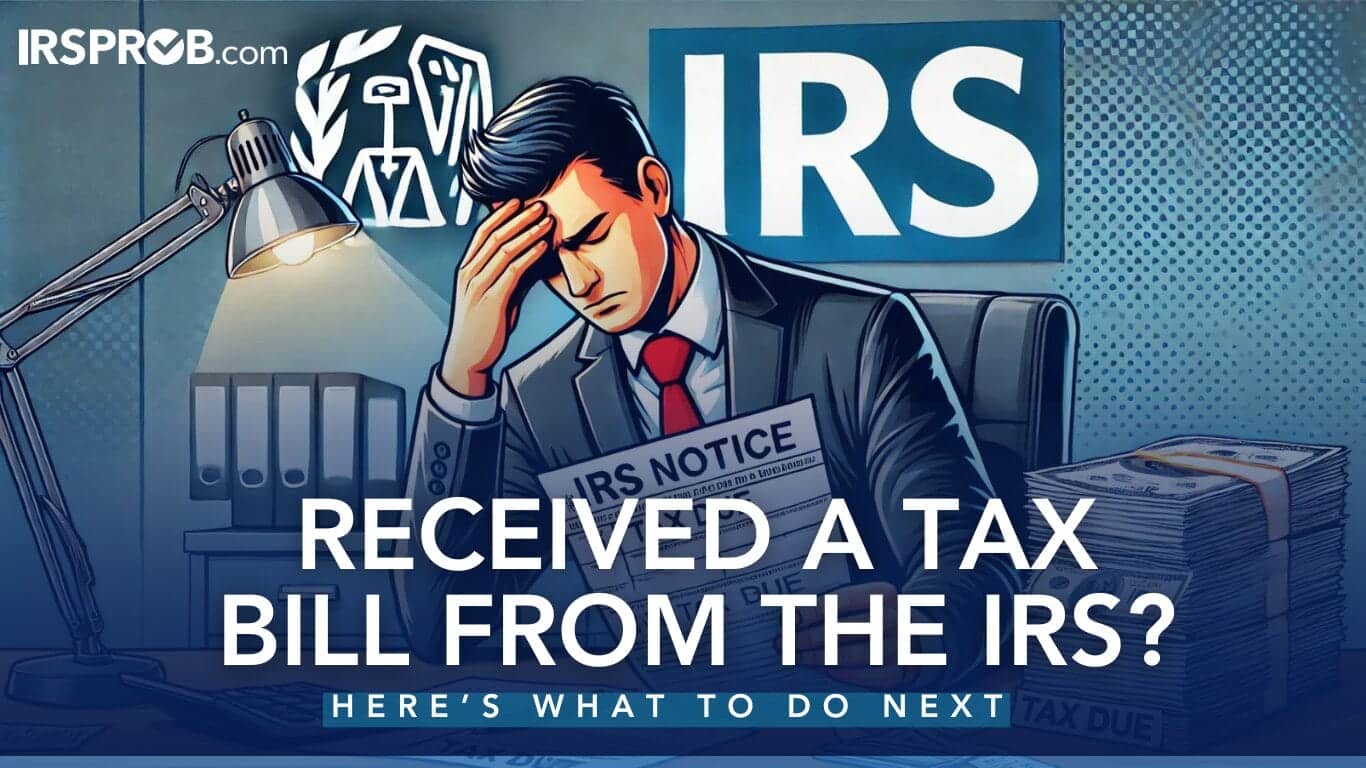Blog
Category: IRS

The IRS is facing a significant challenge in combating bad tax advice circulating on TikTok, a platform it cannot access due to federal restrictions. National Taxpayer Advocate Erin Collins highlighted this issue, explaining the difficulties in reaching users who rely on social media for tax guidance. The IRS has included misleading tax information on its Dirty Dozen list of tax scams and issued alerts on various credits being misused. Business owners are urged to rely on official IRS resources and trusted tax professionals to avoid falling victim to misinformation.

The federal government has issued over $1 billion in upfront tax credits to buyers of new and used electric vehicles (EVs) as part of the Inflation Reduction Act. This initiative, which began on January 1, 2024, allows car buyers to receive tax credits of up to $7,500 for new EVs and $4,000 for used EVs directly at the point of sale, making EVs more affordable and competitive with traditional gasoline-powered vehicles.

Understanding the IRS’s refund statute of limitations is crucial, especially if you’ve missed filing your tax returns for several years. Learn how to navigate the complexities of reclaiming overpaid taxes and avoid losing your hard-earned refunds by staying on top of your annual tax filings.

The Tax Court denied equitable relief to a taxpayer seeking Innocent Spouse Relief after his ex-wife improperly claimed deductions on their joint tax return. Despite meeting several conditions, the court ruled that the taxpayer’s lack of involvement in reviewing the return and claiming a refund undermined his claim of innocence.

Deciding who should own the business car—yourself or your corporation—is a crucial decision for single-owner S corporations. This choice impacts insurance rates, tax deductions, and administrative complexity. Individual ownership may offer better insurance rates, but it complicates reimbursements and tax reporting.

The IRS is set to intensify its audit activities thanks to an $80 billion boost from the Inflation Reduction Act. This funding aims to revitalize the agency, which has faced years of underfunding, resulting in customer service issues and decreased audit rates. Wealthy individuals and large corporations will be the primary focus of these increased audits.

When it comes to retirement planning, married couples have a unique advantage that can significantly boost their savings: the Spousal IRA. This often-overlooked tax break allows a working spouse to contribute to an Individual Retirement Account (IRA) on behalf of a non-working or lower-earning spouse. In this post, we explore how you can leverage a Spousal IRA to enhance your retirement nest egg, covering eligibility requirements, contribution limits, tax benefits, and strategic advantages.

Blog Post Excerpt:
Dealing with IRS penalties can be overwhelming, with over 148 different types potentially adding significant costs to your tax bill. However, many of these penalties can be reduced to zero if you can demonstrate reasonable cause, such as medical issues, bad advice, or natural disasters. Learn how to navigate the process of penalty abatement, potentially saving yourself thousands of dollars, and find out why professional tax help can make all the difference. Don’t let IRS penalties weigh you down – take control of your financial future today.

Navigating the intricacies of tax deductions for business meals can be challenging, especially with the IRS’s Sutter rule potentially reducing or denying your claims. In “Navigating the Tax Maze: How to Safeguard Your Dutch-Treat Business Meal Deductions,” we unravel the nuances of this rule, highlight triggers that might attract IRS scrutiny, and provide practical strategies to protect your deductions. Discover how to effectively document your business meal expenses to ensure they are recognized as legitimate, deductible costs.
The Dirty Dozen represents the worst of the worst tax scams. Compiled annually by the IRS, the Dirty Dozen lists a variety of common scams
In a recent verdict, the Tax Court addressed critical facets concerning spousal relief from unpaid taxes, spotlighting evidence admissibility and the criteria for granting relief
Stay updated with IRSProb’s insights on IRS’s new proposal to modernize seized property sales. Know how it impacts tax liens and audits.
Celebrate Labor Day with IRSProb.com! Your Texas-based partner for tax relief, liens, and IRS audits. Relax, we’ve got your taxes covered!
Unravel the mystery of tax debt relief with IRSProb, your Texas tax relief specialists. Navigate IRS audits, tax liens with ease!
Navigate your tax woes with IRSProb.com’s expert advice. Discover 5 key steps to tax relief. Tax liens, IRS audits simplified. Maximize your savings now!
Navigate IRS negotiations with confidence using our expert tips. Learn from Texas’s top tax relief pros at IRSProb!
Navigate small business tax woes with IRSProb’s expert guidance. Unravel tax liens, audits & more from our Texas tax relief specialists.
Navigate IRS tax issues with ease! Explore IRSProb’s comprehensive guide on tax resolution options and find relief today. Texas’s tax experts.
Dive into the intriguing past of income taxes with IRSProb. Perfect for a July reflection! Tax relief expertise meets history lesson.
Navigate the complex world of U.S. estate tax for non-citizens. Unravel domicile, situs, and tax treaties with IRSProb’s expert insights.
Celebrate Independence Day stress-free with IRSProb.com! Let our Texas-based experts help with tax relief, liens, and IRS audits.
Stay updated with IRSProb’s Summer 2023 legislative changes! Navigate tax relief, liens, and audits with our Texas experts.
Feeling crushed under a massive IRS tax debt? Discover how we slashed a $295,865 liability to just $7,500 at IRSProb, your Texas tax relief experts!
Trouble’s brewing for Teresa Giudice with a new federal tax lien, amidst the Real Housewives reunion. Stay updated with IRSProb.
Struggling with the IRS’s long arm? IRSProb offers expert solutions to tax reliefs, liens, and audits. Beat the tax blues with us!
IRSProb delves into IRS’s exploration of a direct file option, assessing its feasibility and prospective pilot project. Stay updated on tax relief trends!
Unlock the enigma of property seizures in tax disputes. Dive into IRSProb’s expert insights on tax relief and IRS audits. Unravel the mystery now!
Discover how the suspension of debt ceiling limits till post-election can impact taxes. Get expert analysis from IRSProb, your trusted tax relief partner.
Discover how a Florida dentist landed in hot water for tax evasion and false returns. A lesson in the importance of tax honesty, brought to you by IRSProb.
Explore how hiring your kids could unlock tax-free education benefits. Learn the IRS rules with Texas’ top tax relief specialists, IRSProb.
Master the $75 rule for business expenses with IRSProb, your Texas tax relief specialist. Navigate tax liens and audits like a pro!
Honor Memorial Day with IRSProb.com! Your Texas tax relief experts, tackling tax liens and IRS audits with valor.
Unearth the tale of a remodeler contractor’s $1.9M tax scam gone wrong. A gripping IRSProb case study on the perils of underreporting income.
Alabama tax preparer’s 20-month sentence for fraudulent returns – a cautionary tale from IRSProb, your Texas tax relief experts.
Discover how an attorney’s tax fraud led to license suspension, a stark reminder that no one is above IRS scrutiny. IRSProb – solving tax troubles.
Uncover the thrilling tale of a luxury car exporter’s $18M tax evasion on IRSProb. Buckle up for a wild ride in tax relief mysteries!
Discover how a former Arkansas senator’s tax fraud and bribery case unfolded. A cautionary tale of political corruption from your trusted tax experts at IRSProb.
Beware of CPA impostors! Discover the tale of a fraudster who swindled hundreds of clients, breaking trust and wallets at IRSProb.com.
Facing tax troubles? Read how a Florida man received a 30-month sentence for tax evasion. Don’t become a headline, get expert tax help with IRSProb.
Unearth the tale of a contractor’s million-dollar tax fraud & his swift journey to jail. An IRSProb lesson on why to always play fair with payroll taxes.
Dive into the tale of a man’s 20-month sentence for tax evasion. A stern reminder from IRSProb – don’t dance with the taxman, Texas!
Caught in a high stakes game, a restaurateur faces hard time for tax evasion. Discover his downfall at IRSProb, your tax relief experts.
Angela Clay, newly-elected Chicago alderman, conquers polls despite an $18,450 IRS lien. Get the full scoop on IRSProb.com.
Learn how IRS and State Treasuries lost millions to 122 false tax returns at IRSProb, your Texas tax relief specialists.
Discover how a Montana contractor’s 8-year 941 tax evasion landed him in prison. An essential read for avoiding IRS troubles.
Discover the consequences of an 8-year tax hiatus, and how IRSProb, a Texas tax relief firm, steps in to salvage the situation. Visit our page now!
Discover how one man’s mix of tax evasion, drug dealing, and charity fraud unraveled. Learn from his mistakes at IRSProb.
Discover how an Ohio dentist’s tax evasion since ’92 led to a 4-year sentence, gold bars, and silver coins seized. A cautionary tale from IRSProb.
Uncover the shocking tale of a bookkeeper turned thief. Learn how IRSProb can protect your business from such tax nightmares.
Discover the tale of a man’s 310-day prison sentence due to tax evasion. A cautionary tale from IRSProb, your Texas tax relief experts.
Uncover the shocking tale of an employee’s $1.8M scam that left an employer stunned. A must-read case study from Texas’ IRSProb experts.
Facing tax woes? Read how an engineering firm owner evaded taxes and the repercussions that followed. Don’t be next. IRSProb can help!
Learn how a Texas businessman dodged taxes using payroll restructuring, and how IRSProb can help you navigate complex tax issues.
Discover how a financial manager slyly rerouted company funds into her own pockets. A cautionary tale from IRSProb, your tax relief expert.
Teen Mom stars Catelynn Lowell & Tyler Baltierra settle tax debts! Discover how IRSProb can help you navigate tax woes too.
Michigan man trips up on tax troubles, deceives court & Justice Department. Dive into the details of this jumbled justice journey.
Uncover how a pair of restaurateurs cooked up a $1M tax fraud, landing themselves house arrest. IRSProb reveals all.
Arizona resident faces justice in tax evasion case. Dive into IRSProb’s expert analysis of how not to be the next headline.
Discover how a judge upheld a 16-year tax collection effort. Get insights from IRSProb, Texas’ top tax relief experts. Explore now!
Discover how singer Chris Brown landed a $3M tax debt. IRSProb, your Texas tax relief expert, dives deep into this high-profile case!
Discover how a Republic lawmaker turns up the heat on the Treasury Inspector regarding IRS data leaks. IRSProb has the scoop!
Explore how the IRS’s antiquated IT systems are causing significant issues. Get insights from IRSProb, your Texas tax relief specialists.
Explore IRSProb’s insights on why the IRS urgently needs a tech upgrade for efficient tax processing and better taxpayer services.
Tax woes? Learn from this towing company owner’s 15-month sentence for $130K unpaid taxes. Never tow the line with IRS!
Discover the intriguing tale of tax preparers who filed 1,000 false returns and faced the music. IRSProb: making tax tales a cautionary lesson.
Facing jail for tax evasion? Read the story of a man risking 5 years in prison for tax issues at IRSProb – your Texas tax relief experts.
Discover how one man used a ‘zapper’ to lower his taxable income. Unravel the mystery with IRSProb, your Texas tax relief experts!
Tax relief specialist IRSProb reports on Michael Avenatti’s 14-year federal prison sentence. Catch the details on our latest post.
Uncover the intriguing tale of an investment advisor’s downfall due to tax fraud. A must-read for all investors. Beware and be informed!
Discover how a rogue payroll company owner twisted the system for personal gain, only at IRSProb – your trusted tax relief experts in Texas.
Discover how a Texas woman’s illicit banking maneuvers led to prison time for wire fraud and unreported income to the IRS. Don’t be next!
Uncover the scandal of Kansas City’s CFO of the Year turned felon! A tale of deceit, millions embezzled, and IRS repercussions.
Store owner, post $2M in kickbacks, gets a permanent ‘kick back’ behind bars. Catch the full scoop on IRSProb, your Texas tax relief experts.
Dive into IRSProb’s guide on the harsh realities of payroll tax evasion. Texas tax relief experts expose the risks, avoid the pitfalls!
Bite into this juicy story of a restaurant owner’s tax fraud scandal. Texas tax pros, IRSProb, serve up the details.
Discover how an employee’s hidden harvest led to a whopping $14M blow. A must-read tax cautionary tale from IRSProb, your tax relief experts.
Get expert guidance to navigate tax liens, IRS audits, and more. Discover how to choose the perfect tax professional for your business at IRSProb.
Discover how the IRS is upping its customer service game with thousands of new hires, ready to tackle your tax troubles at IRSProb.com.
Discover how a business owner earned a 3-year stint behind bars for neglecting employment taxes. A cautionary tale from IRSProb, your tax relief specialists.
Discover how even law professionals fall prey to tax charges! Visit IRSProb to understand & avoid such pitfalls.
Unearth the intriguing tale of a man’s tax evasion trial and its verdict. IRSProb, your Texas tax relief expert, breaks it down.
Navigate the complexities of IRS Letter 1058 with IRSProb, Texas’ tax relief specialists. Understand your rights and avoid levies.
Sausage shop owner gets grilled in a tax evasion case, lands a year in prison. Learn how IRSProb can help you avoid such a tax pickle.
Unearth the story of a Texas landscape company owner bracing for 60 months due to IRS issues. Real life tax drama at IRSProb!
Fall prey to tax evasion? Not on our watch! Read how a Texas man lands 18-month sentence. Nip your IRS worries in the bud with IRSProb.
Dive into the tale of a Las Vegas tax preparer whose high-stakes gamble with the IRS didn’t pay off. Learn from their mistakes with IRSProb.
Explore how IRSProb proposes a budget revamp and funding boost to modernize IRS IT and enhance taxpayer services. Dive in!
Celebrate with IRSProb as we bag our first win of 2023, providing top-notch tax relief to Texans. Discover the victory story here!
Discover how Detroit’s ex-mayor landed in hot water with the IRS. Unravel the tale of tax evasion, debt, and IRS audits at IRSProb.
Owe back taxes? Don’t panic! Discover strategic solutions with IRSProb, your Texas tax relief experts tackling tax liens and IRS audits.
Discover IRSProb’s insights on the growing US tax gap. We offer expert tax relief services to help you navigate the complexities of the IRS.
Discover the ins and outs of tax filing when you owe money. IRSProb, your Texas tax relief experts, guide you through liens, audits, and more.
Discover how taxpayer advocates fall short in IRS battles, leaving clients stranded. Get expert tax relief with IRSProb, your Texas ally in tax woes.
Facing an IRS CP504 Collections Notice? IRSProb clarifies this tax hurdle and guides Texans towards smart, savvy tax relief solutions.
Delve into IRSProb’s analysis on the pending Senate confirmation of the new IRS Commissioner. Tax relief expertise included!
Discover IRSProb’s expert take on the Supreme Court hearing a case on IRS summons use. Navigate the tax maze with us!
Explore how Trump’s tax return impacts precedents. IRSProb, your Texas tax relief experts, unpack the implications for audits, liens, and more.
Struggling with IRS issues? Navigate IRSProb’s guide to pick a competent tax pro and turn your tax worries into relief. Texas tax experts at your service!
Unravel the mystery of cryptocurrency taxation with IRSProb’s expert guide. Navigate Bitcoin, Ether & more with us. Max 150 characters of crypto clarity!
Apple’s own falls prey to temptation. Unearths a $17M fraudulent scheme. Learn more about this juicy scandal’s tax implications at IRSProb.
Discover how a Canadian tried to outfox the IRS! Read about this audacious attempt at tax fraud at IRSProb, your tax relief experts.
Discover how an accountant’s clever scheme to have his employer pay his bills caught IRS’ attention. Get insights on tax ethics on IRSProb.
Discover how an electrical engineer faces up to five years in jail for tax evasion. A shocking case study from the tax relief experts at IRSProb.
IRSProb updates: IRS postpones cryptocurrency reporting. Stay ahead with Texas’ top tax relief experts. Navigate crypto tax waters with us.
Caught in a tax trap? Even elected officials aren’t immune. Discover this intriguing tax evasion case on IRSProb – your Texas tax relief experts.
Tax relief gone wrong – read how a man faces 40 months for short-changing Uncle Sam on a $1.8M tax bill at IRSProb.com. Don’t be next!
Breathe easy, side-giggers! IRSProb reveals IRS delays in auditing your gig income. Discover more on our Texas tax relief services.
Stay updated with IRSProb! IRS delays new $600+ side hustle filing rules. Get the scoop on tax relief & IRS audits in Texas.
Dive into IRSProb’s analysis on why the IRS couldn’t finish Trump’s audit. Tax relief insights from the heart of Texas, served with a side of wit!
Explore how billionaire Ken Griffin takes on the IRS in court. Unravel the intriguing tax battle at IRSProb – your tax relief specialists.
Explore IRSProb’s insights on potential IRS improvements in 2023. Uncover tax relief strategies from our Texas-based experts.
Minnesota’s tax guru faces irony of justice, as he pleads guilty to tax evasion. A lesson in why even tax pros need experts like IRSProb.
When a daycare owner dodges taxes, it’s not child’s play. Dive into this cautionary tale from IRSProb, your Texas tax relief experts.
Uncover the intriguing story of a man’s brush with tax law and his subsequent probation. IRSProb, your guide in tax relief complexities.
Discover how an Illinois man’s 48 phony W-2s landed him behind bars. A stark reminder from IRSProb – play fair with your taxes!
Discover how a Homeowner’s Association Finance Manager’s swift descent into fraud led to a 37-month jail term. A cautionary tale from IRSProb.
Delve into the tale of an Alaskan tax dodger facing severe consequences. Discover IRSProb’s expertise in tax relief and IRS audits.
Unlock the mystery of federal tax liens with IRSProb’s Q&A guide. Learn, understand and conquer your IRS woes today. Texas tax relief expertise at your service.
Explore IRSProb’s insights on whether to issue your child a W-2 or 1099 when paying them. Learn how to navigate tax laws and save money!
Discover IRSProb’s insights on the new 62.5 mileage rate. Expert Texas-based tax relief advice to drive your savings up a gear!
Navigate the complexities of self-employment taxes as a partner or LLC member with IRSProb – your trusted Texas tax relief specialists.
Get to grips with Self-Employment Tax Basics at IRSProb – your Texas tax relief specialist. Navigate tax liens and IRS audits with ease.
Navigate the tricky terrain of tax laws on legal fees with IRSProb, your Texas tax relief experts. Get savvy, get sorted!
Facing IRS troubles? Get expert advice from IRSProb on how to legally take the IRS to court. Less fear, more facts – right here in Texas!
Appreciating your visit at IRSProb, we’re all set to tackle your tax woes in Texas. Expect relief from liens and audits soon!
Explore how acquisitions can lead to payroll tax discounts at IRSProb. Save smart, stay compliant, and discover tax relief solutions in Texas.
Swap your vacation home tax-free! Discover expert strategies from IRSProb, your trusted Texas tax relief specialists. Learn more today!
Secure your future with IRSProb. Learn how to safeguard your life insurance proceeds from taxes. Texas-based tax relief expertise at your service.
Navigate the tax relief maze with IRSProb, Texas’ top professionals. Discover tips for hiring experts for tax liens and IRS audits on our page.
Boost your business prowess with IRSProb. Learn strategies to stay active in managing tax liens, IRS audits, and achieving tax relief.
Get expert answers to your IRS queries at IRSProb! Explore our Texas tax relief services including IRS audits, tax liens. Click, learn and relax!
Discover smart tax relief strategies with IRSProb. Explore how taking tax shelter can protect your income and assets from tax liens and IRS audits.
Drive your way to tax relief with IRSProb’s expert guide on tax mileage. Learn how to turn miles into savings! Visit us now.
Learn how taxes impact you with IRSProb, your Texas tax relief expert. Unravel tax liens, IRS audits, and find the relief you need.
Stressed about owing the IRS? IRSProb, a Texas tax relief expert, can help you navigate liens, audits, and ease your tax woes. Visit us now!
Discover how a registered nurse traded scrubs for stripes due to tax fraud. Stay informed, avoid similar pitfalls with IRSProb’s expert guidance.
Unlock tax-free growth with a Roth conversion. Discover how IRSProb, Texas’ tax relief experts, can guide your transition. Visit our page now!
Struggling with a hefty tax debt? Discover savvy strategies to negotiate with IRS, reduce liabilities, & regain control at IRSProb.
Delve into a case where crafty crime concealment led to increased jail time! IRSProb sheds light on the repercussions.
Avoid falling into common business pitfalls with IRSProb’s expert tax relief advice. Click to learn, adapt and stay IRS compliant. Texas’ finest!
Explore top health deductions for solo C Corporation owners. IRSProb offers expert advice to maximize your tax relief. Navigate your IRS issues with us.
Navigate tricky tax waters with ease! Discover if your daughter’s income should be filed under W-2 or 1099. Expert advice from IRSProb awaits.
Navigate the new 62.5 cents mileage rate with ease! Get expert advice from IRSProb, your trusted Texas tax relief company.
Learn how to minimize employment taxes using the S Corporation strategy. Expert advice from Texas’s leading tax relief specialists at IRSProb.
Master the tax maze of self-employment with IRSProb. Navigate tax issues, save more, and grow your business effortlessly. Click, learn, and prosper!
Avoid tax trouble! Learn the consequences LLC members and partners face when they skip self-employment taxes. Click to understand better!
Uncover hidden taxes lurking in your C Corporation. IRSProb, your Texas tax relief guide, reveals all. Dive in now!
Uncover how the DOL awarded $39K to workers due to an employer’s illicit tip pool tactics. Learn more with IRSProb, your tax relief ally.
Discover 9 tax benefits for volunteering your time & resources to charities. Let IRSProb, Texas’ tax relief experts, guide your way to savings!
Discover how IRSProb is leveraging the IRS’ expanded voice bot options to provide faster, smarter tax relief solutions in Texas.
Supreme Court eyes penalties for undisclosed foreign accounts – an IRSProb analysis. Tax relief just got more intriguing in Texas!
Unleash the details of IRS going beast mode! Get expert guidance on tax relief, IRS audits, and tax liens at IRSProb, your Texas tax relief ally.
Unravel the mystery of Child Tax Credit (CTC) entitlement with IRSProb, your trusted Texas tax relief specialists. Click, learn, and conquer your taxes!
Discover why there’s no such thing as absolute audit protection and how IRSProb, a Texas tax relief specialist, can help you navigate IRS audits and tax liens.
Find your tax haven! Explore IRSProb’s guide on states with the most lenient tax policies. Never fear tax season again!
Explore the benefits of cement tax breaks for sale-leaseback deals with IRSProb, your Texas tax relief ally. Don’t let IRS audits brick your progress!
Discover if your hobby earnings are taxable with IRSProb, your Texas tax relief specialists. Unravel tax liens, audits & more. Learn now!
Navigate the road of luxury car taxes with IRSProb. Discover savvy strategies to avoid potential IRS pitfalls. Texas tax relief, redefined.
Discover how mixing family and finance can benefit both your child’s future and your tax relief strategy this summer at IRSProb, Texas’ tax specialists.
Discover how trimming payroll tax for shared workers can benefit your business. Expert advice from Texas’s leading tax relief specialists at IRSProb.
Avoid hefty fines with IRSProb! Navigate tax pitfalls with our guide on 4 major tax penalties and stay clear of IRS troubles.
Explore the possibilities of Bitcoin donations and its tax implications on IRSProb. A guide to navigating crypto-charity, tax benefits & more!
Maximize your tax savings with IRSProb’s guide on expanding home office deductions. Texas’ finest in tax relief services!
Discover who owes self-employment taxes and why with IRSProb, your Texas tax relief specialist. Unravel the IRS mystery today!
Navigate the international tax maze with IRSProb. Expert advice on foreign tax laws, audits, and liens to save you from IRS headaches.
Make your Saturdays great again with IRSProb, your Texas tax relief specialist. Say goodbye to tax liens and IRS audits!
Discover ways to curb your gambling loss deductions with IRSProb, your Texas tax relief expert, and keep your finances in check!
Master the art of tackling IRS letters with IRSProb. Learn how our Texas-based tax relief experts can help you navigate tax liens and audits.
Explore your final opportunities for Roth IRA contributions at IRSProb, Texas’ leading tax relief experts. Act now, time is ticking!
Explore IRSProb’s guide on tax breaks for fundraisers. Uncover tips to maximize relief, handle tax liens and navigate IRS audits. Texas tax woes? We’ve got solutions!
Swap stress for serenity! Learn how moving abroad impacts your US taxes with IRSProb – your Texas tax relief specialists.
Discover overlooked child credits that could save you big on taxes. Explore IRSProb’s expert advice on child tax benefits now!
Discover the tax implications of travel for temporary jobs with IRSProb. Unravel the IRS mysteries on the go, Texas style!
Learn to make savvy tax decisions for I bonds. IRSProb, your Texas tax relief pro, guides you through IRS audits, tax liens, and more.
Learn how an Iowa man faced IRS wrath for dodging tax returns. A cautionary tale brought to you by IRSProb – your tax relief experts.
Boston’s finest in hot water! A local cop admits guilt in tax fraud case. Dive into the details with IRSProb, your tax relief experts.
Discover the 5 tax breaks bidding goodbye on IRSProb. Stay updated, plan wisely & navigate your taxes efficiently with our Texas experts!
Unearth the Superintendent’s tax concealment saga from the BOE. Get the scoop now with IRSProb, your Texas tax relief expert.
Discover how a man’s failure to play by IRS rules lands him a 3-year prison sentence and a $40M bill. Dive into the story at IRSProb.
Explore tax credits for your student spouse with IRSProb, your Texas tax relief ally. Navigate IRS audits and liens, smarter!
Unearth the riveting tale of an Iowa woman’s brush with tax evasion. Dive into the IRSProb’s expert insight on potential penalties.
Navigate the digital tax labyrinth with ease! IRSProb offers savvy solutions to prevent tax pitfalls for your computers. Texas-based tax relief at its best.
Discover how a Lowe’s affiliate got tangled in a $13.1M federal tax lien. IRSProb unpacks the story, offering expert tax relief insights.
Facing an IRS tax lien? Don’t panic! Visit IRSProb for expert advice on navigating tax issues & resolving your predicament. Your peace of mind is our priority!
Unearth the tale of a former FEMA worker crossing paths with IRS trouble. Your go-to for tax relief insights in Texas.
Outsource your payroll confidently with IRSProb’s guide! Ensure tax compliance and avoid pitfalls with our expert tips on payroll outsourcing rules.
Dive into this gripping tale of a dentist couple entangled in tax woes. Discover how IRSProb, the tax relief experts, came to their rescue.
Discover how a North Dakota State Senate candidate’s IRS tax liens might impact his campaign. Expert analysis from IRSProb, your tax relief specialists.
Unlock tax relief secrets for your condo or co-op with IRSProb. Explore ways to maximize deductions and minimize IRS hassles. Texas tax pros at your service!
Learn how the IRS means business with ‘The Buck Stops Here.’ Unravel tax relief, IRS audits, and tax liens with Texas-based IRSProb.
Discover how to serve up sweet tax savings with IRSProb’s guide on cafeteria plan perks. Get the dish on smart tax relief in Texas!
Discover how a law enforcer turned law breaker, swindled investors. IRSProb unravels this tax fraud tale, reminding you why professional tax help matters.
Discover how a Stanford University staff member faced tax woes, adding a new twist to the phrase ‘academic failure’. Explore the story on IRSProb.
Avoid penalties on early 529 plan withdrawals. Expert tips from IRSProb, your Texas tax relief specialists. Learn more!
Uncover the tale of a Virginia man’s journey into the murky waters of false tax returns. A cautionary tale from IRSProb, your tax relief experts.
Discover how two Florida women landed behind bars for a whopping $25M tax fraud plot. A cautionary tale from IRSProb – your tax relief experts.
Navigate the tax maze with IRSProb! Discover how our Texas experts can help you secure an 80% IRS audit reduction. Visit now!
Discover how an RV salesman’s detour into tax evasion led him to a dead-end with the IRS. Uncover the tale at IRSProb.
Unlock the secrets of home sale exclusion with IRSProb, your Texas tax relief experts. Navigate tax liens and audits like a pro!
Discover how IRSProb, a Texas-based tax relief expert, can help you tackle tax liens and IRS audits. Time to say Mo’ money, less problems!
Dive into this tale of a fisherman facing a 15-year stay in the slammer for neglecting a whopping $2.7M in payroll taxes. Hooked yet?
Unravel the mystery of math errors in your taxes with IRSProb, your Texas tax relief expert. Say goodbye to tax liens and IRS audits today!
Get your engines running with IRSProb! Navigate through tax relief, liens, IRS audits like a pro. Fuel up at https://irsprob.com/all-revved-up/
Discover how the IRS tapped into a goldmine of $245M in 2021, thanks to whistleblowers. Unearthed at IRSProb, your tax relief experts.
Dive into Salter’s tax court case, TC Memo 2022-29. Learn the ins and outs of this IRS ruling and how it impacts tax relief strategies.
Navigate the complexities of gambling loss deductions with IRSProb. Turn your losses into wins with smart tax strategies. Texas tax relief made easy.
Discover how an approved IRS offer in compromise impacts your tax lien. Unravel tax relief mysteries with IRSProb, your Texas tax experts.
Explore the ins and outs of Limited Liability Companies at IRSProb. Texas tax relief experts unpack LLCs, tax implications, and more.
Explore Part 2 of our deep dive into self-directed IRAs for real estate. Uncover the perks and pitfalls with IRSProb, your tax relief experts.
Traveling to Mexico by cruise ship? IRSProb reveals how your trip could be tax-deductible. Sail your way to tax relief today!
Explore the pros and cons of self-directed IRAs for real estate with IRSProb, your trusted Texas tax relief specialist. Learn if it’s a smart move for you!
Discover how to transition independent contractors to employees without IRS hassles! Tax relief experts at IRSProb guide you through the process.
Maximize tax deductions with the Business-Mileage Rule! IRSProb provides expert guidance on this IRS standard. Learn more on our Texas tax relief site.
Navigate crypto taxation with IRSProb! Unearth the IRS’s stance on cryptocurrencies and get expert tips on tax compliance.
Prepare for a major FinCEN filing shift! Explore IRSProb’s insight on what’s coming, and navigate these tax waters with confidence.
Troubled by tax woes? Get your IRS queries solved at IRSProb’s Q&A page. Expert tax relief, audit, and lien advice from Texas pros.
Dive into the intriguing case of a bookkeeper who bypassed IRS with $1.9M! IRSProb uncovers the details and offers expert tax relief solutions.
Discover how one Utah man’s tax woes led to a prison sentence. IRSProb can help navigate tax troubles before they escalate.
Facing 15 years, a Virginia Beach woman learns the hard way that tax evasion is no day at the beach. Read more at IRSProb.
Discover how a Texas man’s five-year sentence for fraudulent tax returns serves as a stark reminder of IRS’s vigilance. Get expert tax help at IRSProb.
Discover how a Connecticut man’s audacious scheme to swindle Uncle Sam landed him in hot water. A must-read tale from IRSProb, your tax relief experts.
Uncover the story of a dental clinic boss who sank his teeth into tax evasion. A Texas tale of IRS woes from your tax relief experts at IRSProb.
Revealing a secretary’s cunning tax scheme that swindled a small town. Learn how IRSProb can prevent such frauds!
Unearth the saga of a School Board President’s tax evasion run-in. Get insights from IRSProb, Texas’s tax relief experts.
Dive into the saga of a Water District Manager overwhelmed by his self-made tax tsunami. Navigate these choppy IRS waters with us at IRSProb.
Unearth the tale of a payroll manager’s descent into embezzlement. A cautionary tale from IRSProb, your Texas tax relief experts.
Discover how a Texas tree trimmer is pruning taxes, not just branches! IRSProb provides expert tax relief strategies. Navigate the IRS maze with us!
Discover the twists and turns of a business partners’ tax scheme unraveling. Insightful analysis by IRSProb, leading Texas tax relief experts.
Discover savvy strategies on IRSProb to navigate taxes when selling your high-valued vacation home. We make tax relief easy!
Discover how the tax code favors embezzlers at victims’ expense. Learn from IRSProb, your Texas tax relief expert, and shield yourself effectively.
Explore when and why transferring your home to your adult child could be a smart tax move. Expert advice from Texas’s leading tax relief company, IRSProb.
Discover how the $75 Receipt Rule could affect your business vehicle expenses. IRSProb demystifies tax rules to keep you IRS compliant.
Unlock the secret to sidestepping the Net Investment Income Tax as a rental property owner with IRSProb’s expert guidance.
Explore how Donor-Advised Funds can optimize your tax planning for church and charity donations with IRSProb, your Texas tax relief experts.
Navigate the complexities of IRS’s reclassification of independent contractors with CSP. Get expert help from Texas’ IRSProb.
Explore IRSProb’s insights on tax impacts when your vacation retreat doubles as a rental. Unravel tax relief options in Texas today!
Avoid IRS troubles with our expert guide on sending tax documents correctly. IRSProb- making tax relief simpler for Texans.
Navigate the complex terrain of multi-partner partnerships with IRSProb’s expert insights. Discover the perks, pitfalls, and precautions.
Learn why a Health Savings Account isn’t just for medical bills. It’s a secret weapon for a tax-free retirement, only at IRSProb.
Learn how this Texas woman’s tax fib landed her in hot water. A cautionary tale from IRSProb, your tax relief experts.
Facing nine years for tax evasion, a CA property investor learns a hard lesson. Read the IRSProb analysis on this high-stakes tax case.
Discover how an ex-Arizona Justice of Peace landed a six-month sentence in a tax case. A cautionary tale from IRSProb, your tax relief experts.
Discover how a tree service owner found himself in a forest of trouble with the IRS over $900,000 in unreported income. Get tax savvy with IRSProb.
Discover how the IRS allegedly drained a billionaire’s wife’s account. Find expert insights on tax liens and audits at IRSProb.
Discover how IRSProb, your Texas tax relief experts, helped a client reverse over $15,000 in prior year taxes! Victory details here.
Victory! IRSProb overturns a $9,589 audit ruling! Dive into our Texas-sized triumph in tax relief here. Your IRS woes could be next!
Discover how IRSProb, a Texas tax relief expert, saved a client a whopping $70,902.22 in IRS taxes and liens. Triumph awaits you too.
Crunch time for taxes? Discover how your second home office can secure tax relief. Don’t let IRS audits tax your patience – we’ve got you covered.
Only 5 days till tax deadline! Learn IRSProb’s 4 magic mileage rules to maximize deductions and ease your tax stress. Texas’ tax relief experts guide you.
Get ready for the tax deadline! Learn if IRS mileage rates could be shortchanging you. Expert tax relief tips from IRSProb, Texas.
Dreading the tax deadline? IRSProb eases your stress with tips on entertainment facility tax deductions. Don’t miss out!
Beat the tax deadline! Discover how you can fully deduct your business meals in our 8-day countdown. IRSProb: Making tax less taxing.
Beat the tax deadline with IRSProb! Discover how to turn your startup costs into deductions. Save money, start smart. Visit us now!
Crunch time for taxes! Discover 5 savvy rules to make your vacation tax-deductible. Turn leisure into business at IRSProb – your Texas tax relief expert.
Learn how hiring your kids can save on taxes with IRSProb’s insider tips. Beat the tax deadline in Texas with a smile!
Navigate the tax maze with IRSProb! Discover how business meal tax deductions can lighten your tax load in our 13-day countdown to the tax deadline.
Discover how an Atlanta man’s attempt at false tax refund claims landed him in hot water. Learn more at IRSProb, your go-to for tax relief expertise.
Discover how one man’s tax issues landed him facing years behind bars. Let us help you avoid this fate at IRSProb.
Get the scoop on the towing company owner hit with charges for underreported income. Stay tax smart with IRSProb, your Texas tax relief guide.
Discover how the marijuana mogul’s high times ended with a guilty plea to tax charges. Learn more at IRSProb, your Texas tax relief experts.
Discover how a defense contractor tripped up on tax evasion. IRSProb reveals the inside story, offering tips to stay on the right side of tax laws.
Discover how a Chicago Alderman fell foul of tax laws at IRSProb. Learn about tax relief and how to avoid the same pitfalls.
Unearth the story of a medical billing mogul caught in a $1M tax debacle. Learn from IRSProb, your Texas tax relief expert, how to avoid such pitfalls.
Dive into the tale of a Texan’s 51-month sentence over tax evasion. A cautionary tale from IRSProb, your tax relief specialists.
Discover how a Texas judge brands a man’s tax evasion case as one of the worst, unraveling the gravity of IRS violations with IRSProb.
Dive into IRSProb’s April 2022 newsletter! Get the latest scoop on tax relief strategies, IRS audits, and tax liens. Stay tax savvy!
Discover the story of a Utah man sentenced to 51 months over tax evasion. Learn how IRSProb can protect your assets from similar IRS issues.
Discover how a Texas businessman fell foul of IRS audits, facing tax liens and pleading guilty. Stay informed with IRSProb, your tax relief experts.
Caught in a lie? Even Baltimore’s top prosecutor isn’t immune. Unravel this tax-related perjury case with IRSProb’s expert commentary.
Unravel your IRS worries with our Q&A page. Get expert advice on tax relief, liens, and audits from Texas’s leading tax relief company, IRSProb.
Discover how tax professional Mark Carlson finds himself on the wrong side of the IRS, facing five years in prison. A must-read cautionary tale!
Discover how ITS deceived thousands with false tax relief promises. Don’t fall victim – trust IRSProb for genuine tax solutions in Texas.
Discover the shocking tale of a Taxation Chief facing 32 years behind bars! IRSProb unravels the story, offering expert insight into the world of tax compliance.
Ex-cop and spouse turn into millionaires in shocking tale! Get the lowdown on their financial dealings at IRSProb, your tax relief experts.
Discover how Raynor’s act of kindness landed her in hot water with the law. Learn about tax pitfalls at IRSProb.
Follow Michael Little’s journey from tax evasion to big prison. A cautionary tale presented by IRSProb, your tax relief specialists.
Discover how IRSProb helped release a whopping $71,092.22 in IRS tax liens through our successful Offer In Compromise strategy. Learn more!
Discover how a man’s oversight in reporting income led to jail time. Learn from his mistake with IRSProb, Texas’ tax relief experts.
Facing premature IRS collection notices due to backlog? Stay calm, IRSProb can help. Explore our insights on this tax hiccup.
Discover how a Texas business owner hid $35M from the IRS and the consequences they faced. Unearth tax secrets at IRSProb.
Uncover the gritty world of illegal Bitcoin exchanges linked to global drug smuggling. Unravel this shocking case on IRSProb.
Dive into the saga of a Russian bank founder’s $350M tax evasion penalty. An expensive lesson from IRSProb, your go-to tax relief experts.
Discover how two Florida women landed behind bars in a $25M tax fraud saga. A gripping read by IRSProb, your tax relief experts.
Rochester man’s high-stakes Ponzi scheme ends in prison time and heavy restitution. Dive into the IRSProb analysis of this tax fraud case.
Discover how IRSProb, a leading Texas tax relief company, defended a retired widow’s social security from IRS issues. Victory is possible!
Learn how a Maryland man’s failure to file taxes led to evasion charges. IRSProb provides relief strategies to avoid similar troubles.
Dodge taxes, face time! Discover how a Texan man’s evasion landed him a 6-month jail term on IRSProb, your expert in tax relief solutions.
Facing the music! Louisiana man’s attempt to dupe IRS could land him 5 years behind bars. Explore the full scoop on IRSProb.
Discover how a Kansas man fell foul of the law in a major tax case. Unravel the mystery with IRSProb, your trusted tax relief partner.
Struggling with tax woes? Even celebs like Chris Tucker do! Discover how he racked up a $9.6M tax bill on IRSProb.
Florida doc in hot water for tax evasion. Discover how IRSProb can help prevent your financial future from flatlining.
Struggling with tax issues in Texas? Dive into IRSProb’s Q&A page to unravel tax relief, liens, and IRS audits. Knowledge is power!
Discover how a tax evasion case landed a nonprofit founder in jail for 4 years. Another reason why IRSProb is your tax relief lifeline.
Get the full scoop on how a tax dodger landed behind bars. Learn from their mistakes, avoid tax evasion, and stay IRS-compliant with IRSProb.
Uncover the hot scoop on how an arson blaze torched 6,000 false tax returns. IRSProb dishes the fiery details.
Discover how an Oregon restaurateur landed in hot water with the IRS over tax evasion. Learn from his mistakes, IRSProb can help!
Discover how a Cincinnati Police Officer fell foul of the IRS for not reporting off-duty income. Don’t get caught out, IRSProb can help!
Discover how a Vermont man’s tax evasion plea led to his sentencing. IRSProb shares the tale as a sobering reminder of tax compliance importance.
Discover how an Ohio man’s false tax return led to guilt and consequences. Learn from IRSProb, your tax relief expert. Avoid the same fate!
Discover how a Virginia man tangled with the IRS over false tax returns. Learn from his mistakes with IRSProb’s expert insights.
Discover how a Georgia Sheriff racked up a $75k IRS debt. IRSProb offers expert solutions to your tax woes. Dive in!
Dive into our analysis on a Virginia politician’s whopping $224,000 tax lien struggle. IRSProb – your guide in the complex world of tax issues.
Stay updated with IRSProb’s latest tax relief insights! Dive into our November 2021 newsletter for expert advice on tax liens, IRS audits, and more.
Discover the intriguing case of an Iowa man’s 18-month sentence for tax fraud. IRSProb sheds light on this eye-opening tax evasion story.
Unravel the intriguing case of a Florida woman charged with corporate tax evasion. IRSProb provides expert insights into this tax drama.
Three Texans hit the tax evasion jackpot, but their luck ran out. Discover their tale on IRSProb – your guide in the tax relief world.
Discover the intriguing tale of a Delaware woman who could face up to 5 years due to tax violations. Learn more on IRSProb’s blog.
Discover how a Georgia man’s audacious $165M tax refund claim landed him in hot water. A cautionary tale from IRSProb, your tax relief experts.
Discover how former NBA star Dennis Rodman landed a $500K tax bill. IRSProb unravels the saga, offering expert insights on avoiding similar pitfalls.
Haunted House Supply boss faces jail for tax evasion. IRSProb unravels the spooky IRS audit tale. Dive in, if you dare!
Dive into IRSProb’s September 2021 newsletter! Discover expert insights on tax relief, IRS audits, and tax liens. Stay tax savvy, Texas!
Follow the gripping tale of a tax refund case resulting in a 24-month sentence at IRSProb, your Texas tax relief experts.
Discover how an Ohio gambler’s concealed winnings led to IRS woes. IRSProb unravels the case, offering tax relief insights.
Discover how a Bay State legislator racked up six-figure tax debt. IRSProb sheds light on this intriguing case of unpaid federal taxes.
Discover how Courtney Love and other A-listers are grappling with tax woes. IRSProb provides insights and solutions for tax delinquency.
Embark on your marital journey with financial savvy! Navigate the tax maze with our handy checklist for newlyweds. Expert tax relief advice from IRSProb, Texas.
Discover the tale of a Pennsylvania entrepreneur’s downfall due to tax evasion. A cautionary read for all business owners at IRSProb.com.
Beware of Child Tax Credit scams! IRSProb, your Texas tax relief expert, alerts you to the latest frauds. Stay informed, stay safe!
Discover how IRS tax rules can turn your yacht into a tax haven. Dive into IRSProb’s guide and sail smoothly through tax season.
Discover how a Texas restaurant owner cooked up a tax evasion case and got served by IRSProb’s expert tax resolution services.
Discover how a Georgia resident’s defiance of tax laws led to a guilty verdict in a lien case. Unearth lessons from IRSProb, your tax relief experts.
Discover how a Colorado businessman’s faux church led to real IRS trouble. Uncover tax pitfalls to avoid at IRSProb.
Dive into IRSProb’s August 2021 newsletter! Unearth tax relief secrets, tackle IRS audits & explore tax liens. Texas tax relief just got real!
Caught in a web of wire fraud and tax evasion, one Delaware woman learns the hard way. IRSProb: Your lifeline in tax troubles.
Discover how a Connecticut man’s silent income from business and gambling landed him in hot water with the IRS. Learn and avoid his tax blunders!
Baltimore’s power couple squares off a $45K IRS lien! IRSProb sheds light on this high-profile tax relief case.
Stay ahead of the game with IRSProb! Learn how the IRS resumed collection processes in June 2021 and navigate your tax relief options with ease.
Trouble in paradise for Jermaine Dupri as IRS slaps a hefty $500K tax lien. Dive into the juicy details with IRSProb, your tax relief experts.
Discover the ins and outs of the American Rescue Plan with IRSProb, your Texas tax relief experts. Unwrap tax liens, audits, and more!
Stay updated with IRSProb’s latest insights on Child Tax Credit adjustments. Navigate tax relief with our Texas experts in a breeze.
Facing tax troubles? Learn from a New Hampshire man’s 18-month prison sentence. Let IRSProb help you avoid this fate!
Dive into the tale of a man’s downfall due to tax evasion. Explore the gravity of IRS matters with Texas’ leading tax relief experts at IRSProb.
Dive into IRSProb’s July 2021 newsletter! Get expert insights on tax relief, IRS audits, and dealing with tax liens. Your tax woes solved here!
Unearth the tale of late rapper DMX’s $700k tax woes with the IRS, and explore how IRSProb could offer a lifeline in similar situations.
Facing more 1099-K audits? IRSProb, your Texas tax relief expert, guides you through the maze. Get the lowdown on IRS audits here.
Discover the unraveling of a tax conspiracy involving Louisiana men. IRSProb, your Texas tax relief ally, breaks it down.
Discover how an Illinois resident landed in hot water over tax fraud. Stay informed, evade similar pitfalls with IRSProb’s expert tax relief services.
Caught in Uncle Sam’s net, a New Yorker admits to tax evasion. Dive into the gritty details with IRSProb, your tax relief experts.
Liquor store owner behind bars for tax evasion! Read how IRSProb’s expertise could have helped avoid this mess. Texas tax relief at its best.
Software tycoon in hot water over tax evasion. Navigate the murky waters of IRS issues with IRSProb, your Texas tax relief experts.
Discover how Biden’s tax audit surge might impact small businesses. Stay IRS-ready with IRSProb, your Texas tax relief experts.
Indiana couple learns the hard way that Uncle Sam always gets his due. Discover the $1 million tax evasion case on IRSProb.
Get the scoop on a federal inmate and accomplice’s audacious tax fraud scheme. Even prison bars can’t stop some from playing the IRS!
Discover how a Nantucket entrepreneur faced justice for income & payroll tax fraud. Learn from IRSProb, your trusted Texan tax relief experts.
Attorney pays the piper! Delve into this tale of embezzlement, tax evasion & justice served. IRSProb, your guide in tax relief & IRS audits.
Discover how a Missouri inmate and his crew got a different kind of ‘jailhouse rock’ with their tax fraud sentence. Stay law-abiding with IRSProb.
Facing tax evasion charges in New Jersey? Learn how IRSProb can help navigate through tax liens and audits. Plan your defense today.
Delve into the intriguing case of a dual-citizenship holder caught in a web of tax fraud and money laundering. Get the IRSProb perspective.
IRSProb reveals a Prince George’s police lieutenant under scrutiny for tax evasion. Read about this gripping tax drama on our blog!
Discover how even city council members aren’t immune to the long arm of the tax law. Stay informed, stay legal with IRSProb.
Discover how a consultant landed in hot water for underreporting income. Learn from their mistake with IRSProb, your Texas tax relief experts.
Discover how evasion of IRS collections can lead to serious consequences. Read the tale of a man facing five years in prison on IRSProb.
Dive into IRSProb’s analysis of a shocking case: a tax preparer facing 37 charges from the Justice Department. Tax relief insight in Texas!
Discover how a lumberjack’s unreported income led to a tax debacle. Learn from IRSProb, your Texas tax relief experts. Avoid the chop!
Dodge taxes, win a free stay in prison! Read how a tax fugitive landed a 46-month sentence. Learn, don’t repeat. IRSProb has your back.
Uncover the drama as Feds raid Baltimore City Hall amidst a tax probe. IRSProb offers insights & solutions for such tax woes.
Catch up with IRSProb’s May 2021 updates! Dive into tax relief insights, lien resolutions, IRS audit tips and more. Texas’ tax relief experts at your service.
Dive into IRSProb’s June 2021 newsletter! Get the latest on tax relief strategies, IRS audits, and lien resolutions, right from the tax experts in Texas.
At IRSProb, we’re your vigilant Texas tax relief allies, tackling tax liens, IRS audits, and sniffing out fraud. Stay informed, stay secure!
Uncover the shocking case of a tax attorney indicted for a multimillion-dollar tax fraud. IRSProb sheds light on how even experts can falter!
Discover the shocking tale of a Seattle soccer team owner’s downfall due to tax fraud. IRSProb provides insights into the case.
Discover how a CBA player faces federal heat for wire fraud and tax violations! Stay informed with IRSProb, your Texas tax relief experts.
Boston landscaper trades green thumb for orange jumpsuit. Read about the costly tax evasion case at IRSProb, your tax relief specialists.
Uncover the downfall of a Boston property tycoon embroiled in a tax evasion scandal. An IRSProb analysis.
Discover the case of a Peoria businessman handed a 2-year sentence for false tax returns – a cautionary tale from IRSProb, your tax relief experts.
Discover the fate of a restaurant chain manager who served up a 30-month prison sentence for employment tax fraud. Learn more with IRSProb.
Unearth the tale of a California CEO’s downfall due to an employment tax scheme. A real-life cautionary tale from IRSProb, your tax relief experts.
Fashionista hits tax snag! Explore how a designer’s claim for research credits got the IRS runway walk. Tax insights from IRSProb.
Stay updated with IRSProb’s latest advice on the IRS 2020 Recovery Rebate Credit letters. Learn how to navigate these tax waters with ease.
Trouble in paradise! Orange County mogul racks up $30M in unpaid IRS dues. IRSProb provides the lowdown on this taxing issue.
Discover the intriguing tale of a swanky Billings mansion, built on stolen funds and later sold. An IRSProb case study in tax fraud unraveled.
Get the scoop on how a Vermont man under-reported his earnings to the IRS and the aftermath. IRSProb: your guide through tax complexities!
Prominent Texas lawyer admits guilt in tax case. Navigate the tricky waters of tax issues with IRSProb, your trusted tax relief ally.
Discover how a Texas woman fell foul of the IRS by skimming profits from gaming machines. IRSProb reveals all.
Caught in a tax web? Read how this doctor could face 5 years over tax evasion. IRSProb, your Texas tax relief experts are here to help.
Uncover the tale of a healthcare exec’s downfall due to tax evasion. A must-read for tax compliance! #TaxRelief #IRSAudit
Failed to seduce the IRS, a male escort faces 21 months in jail for tax evasion. Learn more about this spicy tax case at IRSProb.
Explore IRSProb’s insights on the Payroll Provisions of the American Rescue Plan Act. Get savvy on tax relief benefits in the new era.
Discover key updates to the Paycheck Protection Program at IRSProb, your trusted Texas tax relief specialists. Stay informed, stay secure.
Catch the latest on our blog: Texas roofer learns the hard way that dodging the IRS isn’t a walk on the tiles! IRSProb – your guide in tax matters.
Discover how an Alabama woman’s tax evasion led to a 46-month prison sentence. A cautionary tale from IRSProb, your go-to for tax relief solutions.
Unravel the tale of a CFO’s tax evasion downfall at IRSProb – your trusted guide through the tax maze. Learn from his missteps!
Discover how a California woman’s false tax returns landed her in hot water. IRSProb breaks it down – stay informed, stay legal.
Learn how a Texas contractor tripped on tax fraud and the implications thereof. IRSProb – your guide in the maze of tax issues.
Check out IRSProb’s March 2021 newsletter! Stay updated on tax relief tips, IRS audits, and tips to handle tax liens in Texas.
Facing 3 years for tax evasion? Learn from this Texas man’s misstep to navigate your own tax woes. IRSProb, your tax relief ally.
IRSProb explores IRS’ blunder of sending non-filing notices amid unprocessed 2019 returns. Get insights on tax relief and audits in Texas.
Uncover how IRSProb, a Texas tax relief ace, achieved a staggering $235,404.37 tax savings for a client. Dive in for the full story!
Discover how the new law incentivizes employers with extended COVID tax credits. Keep your payroll intact, master tax relief with IRSProb, Texas.
Discover IRSProb’s latest scoop: COVID-19 protection costs for teachers now tax deductible! Click for a financial breather.
Stay vigilant against “Ghost” tax returns! IRSProb, your Texas tax relief expert, uncovers the spookiest IRS scams. Learn more and protect your finances.
Discover how you might qualify for IRS penalty forgiveness through reasonable cause. Dive into IRSProb’s expert tax relief secrets today.
Facing 3 years for false tax returns, this Louisiana man’s case serves as a stern reminder of IRS audits. Learn more at IRSProb.
Discover how one man’s misuse of withheld taxes for personal gain landed him in hot water. IRSProb shares the cautionary tale.
Ex-pro soccer player scores own goal with massive fraud! Discover how IRSProb, your Texas tax relief experts, can tackle such IRS issues.
Stay in the know with IRSProb’s February 2021 newsletter! Get your fill on tax relief, IRS audits, and tax liens updates. Don’t miss out!
Discover how even the law isn’t above the law! Visit IRSProb to read about a lawyer’s indictment for tax evasion. No one’s exempt!
Discover how a man breached IRS security, as reported by DOJ. Learn more about IRS audits and defenses with IRSProb, your Texas tax relief experts.
Discover essential details for the Earned Income Tax Credit with IRSProb, your trusted tax relief specialist in Texas. Navigate tax liens and audits with ease.
Get ready to file your 2021 taxes! IRSProb, Texas’ tax relief specialists, share key dates and tips for a stress-free tax season. Start on February 12th!
Beware the surge of COVID-19 scams! IRSProb, your trusted Texas tax relief experts, decode the latest IRS warnings for your financial safety.
Discover how a Columbia man faced the consequences of evading employment withholding taxes, a cautionary tale from IRSProb, your tax relief experts.
Dive into a tale of a Rhode Island seafood mogul caught in a tax evasion net. A fresh catch for IRSProb, your go-to tax relief experts.
Discover how a Louisiana accounting business owner got caught in the tax fraud net. IRSProb, your expert guide to tax woes.
Georgia tycoon on trial for tax & healthcare fraud. IRSProb breaks down the case. Know your business rights & avoid IRS pitfalls.
Uncover how two Oregon men exploited SBA & EIDL for a COVID relief fraud scheme. Stay updated, IRSProb helps navigate tax complexities.
Navigate the 2021/2022 tax maze with IRSProb! Discover how to deduct business meals from your tax. Get ahead, stay informed, save more.
Explore IRSProb’s guide on Covid-19 tax relief options. Don’t let the pandemic tax you more than it should!
Dive into this tale of a financial advisor turned felon. Learn how IRSProb can protect your assets from such deceit.
Paving the way to justice, a Texas paving company owner gets mired in tax fraud. Read the intriguing case on IRSProb.
Discover how a tax expert fell foul of her own evasion schemes. IRSProb sheds light on this ironic tale, offering crucial tax relief insights.
Dive into IRSProb’s December 2020 Newsletter! Unwrap tax relief insights, updates on IRS audits, and tips to tackle tax liens.
Discover how a tech mogul’s alleged tax evasion landed him in hot water. Dive into America’s biggest tax case on IRSProb.
Iowa bookie lucks out with probation for tax shenanigans. Explore the full story of IRS justice at IRSProb.
Trouble in paradise? Texas souvenir shop owner faces tax evasion charges. Dive into the IRSProb case study and learn how to stay tax compliant.
Uncover how the waterslide tycoon’s tax evasion case unfolded. Dive into IRSProb’s expert analysis on the case’s implications for tax law.
Discover how a Montana businessman fell foul of IRS regulations, highlighting the importance of good tax practice. Learn more at IRSProb.
Discover how a Las Vegas man tangled with the IRS in a bold tax conspiracy. Dive into the intriguing case study on IRSProb.com.
Uncover the tale of a former NY official’s fall from grace, sentenced to 6 months. Dive into the tax drama at IRSProb.
Discover how Intuit’s $40m settlement impacts you. IRSProb, the tax relief experts, delve into the details. Stay informed, stay prepared.
Explore options beyond PPP loans! IRSProb reveals how to tap into $150,000 still available through SBA. Texas tax relief made easy.
Get the scoop on Boston Towing’s payroll fraud saga. IRSProb provides insights and solutions for your tax troubles. Navigate the storm with us!
Caught in a tax trap? Learn how an Illinois contractor manager faces indictment for false tax returns. Don’t let it be you!
Find out how the Kentucky Education Board’s Financial Director ended up behind bars for tax fraud, only at IRSProb.com.
NY donut moguls knead more than dough! Uncover how they glazed over taxes and landed in a sticky tax fraud situation at IRSProb.
Discover how a Tesla exec ended up in a high-voltage tax scandal! IRSProb sheds light on his shocking false tax return saga.
Discover how the creator of your favorite virus software landed in hot water with the IRS! Dive into our analysis at IRSProb.
Learn how a public official landed a 32-month sentence for tax fraud. Stay informed with IRSProb, your trusted Texas tax relief experts.
Discover the saga of a financial planner’s 51-month sentence for tax evasion. A sobering reminder from IRSProb, your tax relief specialists in Texas.
Uncover the sly tax refund scheme that roped in two guilty pleas. Stay informed with IRSProb, your Texas tax relief experts!
Discover how a California vet’s tale of tax evasion turned into a doggone disaster. IRSProb: your guide to avoiding such costly mistakes.
Discover how the brother of a NY Rabbi evaded $700K in taxes. Unravel this intriguing tax evasion tale at IRSProb.com.
Uncover the allegations of tax fraud circling the NRA Chief. IRSProb, your Texas tax relief expert, sheds light on the case.
Stay ahead with IRSProb! Explore IRS Cost of Living Adjustments for 2021, master tax relief and avoid liens and audits. Knowledge is power!
In a landmark ruling, a judge orders IRS to stop withholding stimulus funds from inmates. Navigate the tax maze with IRSProb.
Unravel the tale of a Lake Michigan controller’s fall from grace – a saga of embezzlement, deceit, and the long arm of the IRS.
Discover how a Rhode Island businessman got caught in the IRS web twice for payroll tax fraud. A cautionary tale from IRSProb, your tax relief experts.
Pittsburgh controller faces jail for fraudulent tax returns. Discover the details on IRSProb, your guide for all things tax-related.
Discover how a North Carolina doctor’s tax evasion and money laundering saga led to a 20-year sentence. A cautionary tale by IRSProb.
When the taxman becomes the tax cheat, IRSProb has the scoop! Discover how an IRS agent landed in hot water for false returns.
Discover how Texas lawn care moguls got mowed down by tax fraud charges. Insightful read for business owners on IRSProb.
Facing jail for unreported income? Learn about this Texas woman’s IRS saga and how IRSProb can keep you on the straight and narrow.
Trouble’s melting for cheesesteak owners facing tax charges. IRSProb offers a recipe for relief. Visit for the full scoop.
Discover how a Texas woman’s false liens against an IRS agent landed her in hot water. IRSProb unravels the tale. Learn more.
Discover how a borough treasurer landed in hot water over tax issues. An intriguing tale of tax woes from IRSProb, your tax relief experts.
Discover how the ex-Ohio GOP chief tackled his IRS woes, proving no one’s immune to tax tribulations. Learn more on IRSProb.
Explore IRSProb’s tax relief solutions! From tax liens to IRS audits, our Texas team works hard to lighten your tax load.
Navigate IRS W-2 requirements for FFCRA leave pay with IRSProb, your Texas tax relief experts. Simplifying tax liens and audits, one form at a time.
Unlock $500 with IRSProb! Don’t miss this opportunity to reclaim what’s yours. We make tax relief in Texas simpler than ever.
Victorious once more, IRSProb.com, your Texas tax relief specialists, triumph over tax woes, liens and audits. Discover our winning formula!
IRSProb strikes another victory! Witness how our Texas-based tax relief experts triumph over tax liens and IRS audits.
Uncovered another tax scam? IRSProb, your Texas tax relief experts, are on it! Stay informed and protected with our latest findings.
Caught in a tax trap? This temp agency owner didn’t stand a chance against IRSProb’s expert tax relief services. Learn more at our link.
Cleaning company owner in Jersey admits tax evasion! Dive into the dirty details with IRSProb, your tax relief specialists.
Dive into IRSProb’s riveting exposé on a colossal New York bribery scheme, uncovered by the IRS. Tax intrigue at its peak!
Philly restaurant owners in hot water for tax evasion. Get the scoop and learn how IRSProb can help navigate tax troubles.
Upstate NY man overlooks declaring vast sum, landing in hot water. Learn about the IRS audit fallout and tax relief options at IRSProb.
Uncover the intriguing tale of three men charged in a refund conspiracy. Dive into the case with IRSProb, your Texas tax relief experts.
Caught in a taxing situation! Read how a North Carolina woman’s false return ploy unraveled. Stay informed with IRSProb.
Discover how a New York man fell foul of the IRS in a major tax evasion case. A cautionary tale from IRSProb, your tax relief experts.
Discover how Lincoln Project founders grapple with tax woes. IRSProb, your Texas tax relief specialist, uncovers the story.
Discover IRSProb’s September 2020 insights on tax relief, liens, audits & more. Catch up on the latest from your trusted Texas tax relief specialists.
Unravel the complexities of the Presidential Memo Deferring Payroll Tax Obligations with IRSProb, your Texas tax relief specialists.
Discover the tax pitfalls even experienced developers can fall into. Read about a Connecticut developer’s costly tax fraud case at IRSProb.
Act fast! Don’t miss out on CARES Act rollover relief. IRSProb, your Texas tax relief experts, guide you through the process. Deadline August 31st!
Discover how the IRS plans to send tax refund interest payments. Get the lowdown on this intriguing development at IRSProb, your Texas tax relief gurus.
Caught red-handed! Discover how a tax preparer’s fraudulent game ended in conviction. Lesson? Always play fair with the IRS!
Uncover the tale of a Houston attorney’s fall from grace – caught in a web of fraud and tax evasion. IRSProb sheds light on the case.
Discover how a Connecticut accountant’s tax evasion plea unravels, offering valuable lessons on IRS audits and tax relief. IRSProb explains.
Navigate 2021’s ACA affordability increase for employers with IRSProb – your Texas tax relief experts. Stay compliant, avoid IRS audits, and save!
Get the lowdown on the new tax bill for out-of-state telecommuters. IRSProb, your Texas tax relief experts, decipher the details!
Discover how IRSProb, your trusted Texas tax relief ally, can help you navigate the IRS’s resumed enforcement activities. Be prepared, not panicked.
Unpack the impact of the Executive Order on Social Security tax deferrals. IRSProb, your Texas tax relief experts, break it down for you.
Explore IRSProb’s analysis of the new PPP package from Congress. Get insights on tax relief and IRS audits from the Texas tax experts.
Missouri man busted for bogus debt portfolios. Delve into this cautionary tale and learn how to safeguard yourself with IRSProb’s expert insights.
Discover the intriguing tale of a woman’s guilty plea for filing false tax returns. An IRSProb case study on tax fraud consequences.
A Florida man lands in hot water for inflating his income. Dive into this tale of tax woes and IRS audits at IRSProb.com.
Discover how a NY man used his son’s account for an IRS scam. Unearth this unique tax evasion saga at IRSProb – your tax relief experts.
Uncover the intriguing story of an Illinois woman swindling a medical practice. A stark reminder: tax fraud isn’t a game, it’s an IRS problem.
Discover how a woman swindled a hockey team out of thousands and the tax implications. Expert insights from IRSProb, your Texas tax relief specialist.
Dive into IRSProb’s August 2020 Newsletter! Unearth insights on tax relief, IRS audits, and tax liens all the way from Texas.
Trouble with taxes lands a woman in jail for 33 months. Explore this cautionary tale from IRSProb, your Texas tax relief experts.
Caught red-handed! Discover how a Texas man confessed to dodging $400K in taxes. Expert insights from IRSProb, your go-to tax relief specialists.
Discover how one man’s gamble with IRS over his betting business backfired. Unravel the story at IRSProb, your tax relief experts.
Learn how a former professor got schooled in tax law. Uncover their false tax return saga at IRSProb, your Texas tax relief experts.
Even civil rights lawyers face the music! Discover how one was sentenced for evading taxes on IRSProb, your Texas tax relief expert.
Unravel the complexities of investment interest with IRSProb, your Texas tax relief expert. Learn how to navigate tax liens, IRS audits, and more.
Discover savvy strategies for future planning of estate & gift taxes with IRSProb, your Texas tax relief experts. Navigate your financial future today!
Navigate the COVID-19 IRS changes for retirement accounts with IRSProb – your Texas tax relief experts. Stay informed, stay secure.
Explore how the CARES Act impacts your Required Minimum Distributions with IRSProb, your Texas tax relief ally.
Explore IRSProb’s insights on the possibility of S and C Corporations getting PPP loans forgiven. Your tax relief guide in Texas.
Beware! IRSProb highlights IRS’s alert on rising COVID-19 scams. Stay informed, stay safe with our Texas-based tax relief experts.
Discover how an audacious Armenian crime ring bilked the IRS of $14M, and learn how IRSProb can help you legally navigate tax issues.
Discover how a California duo bent the rules, using charity as their tax evasion shield. Dive into this intriguing IRS tale at IRSProb.
Discover how the UAW President fell into the IRS spotlight for embezzlement. Learn more about tax fraud detection at IRSProb, your tax relief experts.
Caught in a web of deception: an IT Director faces tax fraud charges. Dive into this intriguing IRS case on IRSProb.
Discover how a Texas family’s illegal gambling and tax evasion antics led them to jail. Stay informed, stay compliant with IRSProb.
Explore how this Texas businessman mishandled payroll taxes, facing IRS wrath. Learn how IRSProb can guard your business against similar pitfalls.
Texas man faces 76-month sentence for tax fraud. Dive into the IRSProb blog to learn how we help avoid such IRS pitfalls.
Dive into IRSProb’s July newsletter! Uncover the latest on tax relief, IRS audits, and tax liens. Get tax-savvy in Texas today!
Discover how a former healthcare exec’s tax evasion could land him 20 years in prison. Uncover the story at IRSProb, your Texas tax relief experts.
Married duo caught in a tax tangle! Discover the story behind their fraudulent dealings and learn how to avoid such pitfalls with IRSProb.
Facing prison after a conviction, this used car salesman’s tax evasion tale is a cautionary one. Learn more at IRSProb.
Explore IRSProb’s latest update on a potential new COVID-19 stimulus package. Get savvy tax insights, Texas-style!
Discover how the new law turns medical care arrangement payments into tax-deductible expenses. A game-changer for your IRS problems solved at IRSProb.
Join IRSProb, Texas’ tax relief expert, as we welcome 660AM The Answer, Dallas’ premier radio station. Tune in for IRS insights!
Explore if your house flipping education costs can be a tax write-off with IRSProb, your Texas tax relief experts.
Explore IRSProb’s guide on special tax allocations for partners. Unravel the complexities of tax relief, liens and IRS audits in Texas.
Living/working abroad? Your tax deadline just got a breather! Now due July 15. Unravel more at IRSProb, your go-to for all tax relief matters.
Unraveling COVID-19’s impact on retirement account tax laws? IRSProb, your Texas tax relief expert, has the updates you need.
Discover how a partner’s self-employment income can lead to cash flow and tax forgiveness. Expert advice from Texas’ IRSProb, your tax relief ally.
Navigate vacation home tax rules smartly with IRSProb’s expert guidance! Learn how business use can offer tax relief. Explore more on our page.
Unravel the tax mystery around EIDL Advance with IRSProb! Dive in to find if it’s taxable or not. Taxes made simple, Texas style.
Discover how the House’s newly passed bill provides more PPP flexibility. Stay updated with IRSProb, your Texas tax relief specialists.
Catch the latest on a Michigan tax preparer charged with wire fraud. IRSProb—your go-to for tax relief updates and IRS audit insights.
Caught in a tax evasion web, a New Jersey attorney pleads guilty. IRSProb offers insight on this case, inviting you to learn & avoid such pitfalls.
Discover how an Emory University professor fell foul of the IRS for filing false tax returns. A lesson in tax honesty from IRSProb.
Tennessee buffet owners in hot soup over income fraud! IRSProb unravels the case, serving hot insights on tax evasion tactics.
VH1 Star from Atlanta faces bank fraud charges. Navigate the murky waters of tax issues with IRSProb, your trusted tax relief ally.
Discover how a Florida woman got entangled in a fraudulent IRS scam and the consequences she faced. Learn from her mistakes with IRSProb.
Discover how a California man’s false tax returns unraveled with IRSProb, your Texas-based tax relief experts. Truth always wins in taxes!
Explore the DOJ’s case against an antiques dealer for illegal ivory trade and tax evasion. Learn more with IRSProb, your tax relief expert.
Learn how a woman dodged the US justice system in a high-profile tax evasion case. Unpack the story at IRSProb, your tax relief experts.
Discover how California doctors landed in hot water with the IRS for tax evasion. Stay informed to avoid similar pitfalls!
Lubbock Tax Service breached! Learn how IRSProb, your trusted Texas tax relief specialist, responds to the crisis. Stay secure, stay informed.
Singer R. Kelly hit a sour note with the IRS, owing $1.8M in back taxes. IRSProb can help you avoid the same fate. Tune in for more.
Explore the nuances of PPP loan forgiveness with IRSProb, your Texas tax relief experts. Are these expenses deductible? Find out now!
Explore how COVID-19 relief measures can benefit your S Corporation’s tax situation with IRSProb, Texas’ trusted tax relief specialist.
NY pharmacy owner gets bitter pill of tax evasion. Uncover the details on IRSProb, your tax relief ally.
Explore COVID-19 assistance programs with IRSProb, your TX tax relief specialists. Navigate tax liens, audits, and more with our expert guidance.
Discover how a Florida agri-business tycoon’s tax evasion plea unravels. Unearth the story at IRSProb – your tax relief experts.
Caught in a warranty fraud web? IRSProb can help untangle the mess before the gavel falls. Texas tax relief experts at your service.
When a dentist’s tax woes bite back, IRSProb cleans up the cavities. Discover how we provided relief for this dental dilemma.
Explore how the CARES Act mended QIP rules with IRSProb, your Texas tax relief experts. Navigate tax liens and audits like a pro!
Explore how Congress eased COVID-19 restrictions on cash from net operating losses. Get tax relief insights from Texas-based IRSProb experts.
Discover the dual benefits of Roth IRAs. Unveil how it can enhance your retirement savings and reduce your tax liability with IRSProb.
Beware! Scammers have eyes on your stimulus check. Learn how to outsmart them with IRSProb, your Texas tax relief experts. Stay safe, stay informed.
Discover top-notch strategies from COVID-19 tax relief measures. Navigate the pandemic’s financial impact with IRSProb, your Texas-based tax relief experts.
Iowa resident bags 15 months in the big house for dodging taxes. Learn more about the consequences of tax evasion with IRSProb.
Unearth the tale of a cunning salesman who swindled the IRS out of $1M. Dive into tax evasion tactics and learn how IRSProb can keep you protected.
Uncover how a Texan man’s false tax returns landed him in hot water. Dive into IRSProb’s expert analysis for tax relief insights.
Discover how the arrest of a top Russian bank’s founder could impact your financial landscape. Stay informed with IRSProb.
Rick Ross settles $1.5M tax tab with IRS! Explore the mogul’s financial journey at IRSProb, your Texas expert in tax relief and audits.
Navigate 2020’s tax maze with IRSProb’s new Section 199A calculator. Simplify your deductions, empower your Texas business. Let’s crunch those numbers!
Navigate IRSProb’s guide on COVID-19 tax relief for payroll and self-employment. Texas’ leading tax relief experts unravel the ins and outs.
Discover how one audacious Texan outsmarted the IRS. IRSProb provides expert insights into tax relief strategies and IRS audits.
Explore IRSProb’s joyous moments! We’re experts in tax relief, tackling IRS audits & tax liens, always celebrating your victories.
Explore how the CARES Act affects your IRA during COVID-19. Get savvy tax relief solutions from IRSProb, a Texas tax relief expert.
Navigate the pandemic with IRSProb’s latest info on COVID-19 small business loans. Tax relief made easy for Texas entrepreneurs.
Explore the pros and cons of early tax filing vs waiting until July 15 with IRSProb, your Texas tax relief experts.
Explore IRSProb’s insights on the tax breaks offered by the CARES Act. Unravel the secrets to tax relief, liens, and IRS audits today.
Explore how California’s AB 5 Law impacts your taxes with IRSProb, Texas’ tax relief experts. Get the lowdown on this game-changing legislation.
Navigate IRSProb’s new IRS Portal for the latest on tax relief, liens, audits. A Texas tax relief company turning your IRS problems into solutions!
Discover how the CARES Act provides tax relief. IRSProb, your Texas tax relief specialist, breaks down the benefits. Lean on us, not the IRS!
Beware of COVID-19 scams! Stay informed with IRSProb, your Texas tax relief expert. Learn about IRS warnings on pandemic-related frauds.
Navigate the tax relief benefits of the CARES Act with IRSProb, your Texas tax relief specialists. Don’t tackle IRS audits alone!
Discover how the CARES Act provides tax relief! IRSProb, your Texas tax specialist, breaks down the benefits. Learn more on our page.
Stay updated with CARES Act changes on IRSProb’s page. Your Texas tax relief ally for audits, tax liens, and more. Navigate the IRS maze with us!
Stay updated on CARES Act amendments with IRSProb, a Texas tax relief expert. Navigate tax relief, liens, and audits with ease.
Discover how one Texas man’s tax evasion led to an 18-month sentence. Get expert insight and avoid a similar fate with IRSProb’s tax relief services.
Stay updated with CARES Act changes at IRSProb. Your Texas tax relief specialist for liens, audits, and now, pandemic aid info.
Unravel the tax relief benefits of the CARES Act with IRSProb, your Texas-based tax relief experts. Cut through the jargon, start saving today!
Discover how even a cavity-filling expert can get drilled by the IRS. Learn about a Texas dentist’s tax evasion case on IRSProb.
Two Texas lawn service moguls mowed down by federal tax law. Discover their missteps on IRSProb. Avoid similar tax troubles with our expert help.
Unravel the tale of an insurance tycoon’s fall from grace, facing 30-months jail time for tax evasion. A sobering reminder from IRSProb, your tax relief experts.
Software Engineer in hot water for tax fraud! Read how IRSProb’s expertise could have prevented this Texas-sized mess.
Discover how IRSProb, your trusted Texas tax relief specialist, untangles the $1.6M tax knot for a Texas oil tycoon. Navigate the complexities with us.
Explore the financial perks of skipping 100% depreciation on IRSProb. Unlock smarter tax strategies, avoid liens, and ace your IRS audits with us.
Explore the complexities of husband/wife business partnerships with IRSProb! Unravel tax implications, benefits, and liabilities at IRSProb.com.
Unearth forgotten funds with IRSProb! Discover if Uncle Sam owes you cash. Navigate tax relief, liens, and audits like a pro. Visit now!
Maximize your savings with IRSProb’s expert tax tips! Uncover the secrets of tax relief and avoid liens and audits. Texas’s trusted tax guide.
Discover how IRSProb, a Texas tax relief expert, saved a client a whopping $157,332.69 in taxes! Visit to see how we could do the same for you.
Explore savvy tax-saving strategies with IRSProb, your Texas tax relief specialist. Navigate tax liens, IRS audits with ease today!
Discover how a quick-thinking Sacramento cab driver saved a 92-year-old woman from a $25K IRS scam. A real-life hero story from IRSProb.
Discover how a Texas man’s fraudulent actions led to a 46-month sentence. A lesson from IRSProb on importance of tax compliance!
Discover how a Florida man faces a 5-year ordeal over tax issues. Learn from his missteps & dodge similar tax pitfalls with IRSProb’s expertise.
Discover how one Colorado man faced 20 months in prison for tax and disability violations. Learn from his mistakes with IRSProb’s expert advice.
Discover how a Florida woman swindled $128K in false tax refunds, a cautionary tale brought to you by IRSProb, your tax relief experts.
Discover how the former United Way leader landed in prison. A stark reminder from IRSProb: even charity heads aren’t immune to tax laws!
Discover how a Texas inventor’s risky gold investment led to tax troubles. Read IRSProb’s expert analysis on avoiding similar pitfalls.
Discover how the New Orleans Mayor landed a hefty $95K tax bill. Dive into the details with IRSProb, your go-to tax relief experts.
Explore the parallels between golf swings and tax relief strategies. Even pros miss but IRSProb is here to make sure your tax game is always on par.
Caught evading taxes in Alabama? IRSProb is here to shake things off! Get expert tax relief solutions, lien help, and audit representation.
Don’t be caught off guard by the IRS. Navigate tax liens, audits, and relief with IRSProb, your Texas-based tax expert.
Discover how a Brady landed in hot water with the IRS, leading to serious jail time. Unearth the story at IRSProb – your go-to tax relief experts.
Discover how a timeshare salesman’s tax evasion landed him a permanent vacation behind bars. Unpack his cautionary tale with IRSProb.
Discover how IRS is increasing audits on high-income taxpayers. Stay compliant with IRSProb, your Texas-based tax relief experts!
Plan for a stress-free retirement with a Solo 401(k). Visit IRSProb and find out why it’s the best option for self-employed folks.
Discover the eight crucial changes in the SECURE Act affecting your taxes. IRSProb, your Texas tax relief experts, breaks it down for you here.
Explore IRSProb’s take on the IRS’s new identity theft website. An essential read for tax relief insights and protecting your information.
Discover how the reinstatement of expired tax provisions by Congress impacts you. IRSProb, your Texas tax relief expert, breaks it down for you.
Uncover the ‘Dirty Dozen’ IRS scams with IRSProb, your Texas tax relief experts. We navigate tax liens, audits, and more. Knowledge is power!
Navigate the murky waters of tax fraud with IRSProb, your Texas-based tax relief experts. Discover how to steer clear of IRS audits and tax liens.
When tax problems hit hard, even Rocky loses his belt! Find out how IRSProb can help you knock out tax issues at irsprob.com.
Caught in a fraud web, a money manager exits the game. Learn more about this scandal and IRSProb’s expert tax relief solutions.
Explore IRSProb’s take on Michael Avenatti’s legal storm. We delve into tax issues that have the famed attorney under a cloud.
Discover how IRSProb unravels the mystery of ‘dentist chairs’ in tax issues. Navigate the complexities of tax liens and audits like a pro!
Discover IRSProb’s insights on the new IRS Gig Economy Tax Center! Expert advice for freelancers navigating tax relief, liens, and audits.
Caught in a tax fraud net? IRSProb reveals how a fraudulent tax return can lead to prison. Learn & avoid! Texas’ best for tax relief.
Avoid IRS pitfalls! Discover why using your child’s name for tax benefits can backfire. Navigate tax relief with Texas experts at IRSProb.
Avoid the IRS hammer! Learn why filing false tax returns for nonprofits can be costly, not profitable. Get expert help at IRSProb, Texas.
Get the upper hand on IRS issues! Discover 8 compelling reasons to hire a tax resolution pro at IRSProb. Don’t let tax woes tax you!
Celebrate with us as Randell W. Martin, our tax relief ace at IRSProb.com, now wields the prestigious CTRS credentials! Texas tax woes, beware!
Caught in tax fraud, a Florida man files two false returns! Unravel the tale of deceit with IRSProb, your tax relief experts.
Unravel the mystery of IRS field revenue officers. Spot the signs, dodge pitfalls, and navigate tax woes with help from IRSProb, your Texas tax relief expert.
Ex-lawyer handed 2-year sentence. Learn how IRSProb can prevent tax woes from landing you in similar hot water.
Discover IRSProb’s take on IRS’s new policy: no more tax on debt from closed colleges. Find relief, guidance, and support here.
Uncover the truth about IRS’s actual priorities! IRSProb, your Texas tax relief specialist, breaks down why IRS isn’t your financial buddy.
Demystify the complexities of payroll taxes with IRSProb. Navigate the tax labyrinth with our tax relief experts in Texas.
Discover how a celeb’s CPA gambled away fortunes. IRSProb provides expert advice on tax mishaps and IRS audits. Don’t bet your taxes!
Unravel the complexities of tax fraud across states and businesses with IRSProb, your Texas-based tax relief experts. Dive in now!
Explore how to legitimately profit from a non-profit! IRSProb guides you through the IRS maze. Texas tax relief made simple.
Discover IRSProb’s riveting account of a challenging day in court. Delve into the world of tax relief, IRS audits, and tax liens in Texas.
Stuck on your IRS account? Don’t fret! IRSProb clarifies why the IRS won’t log you out and how to navigate tax relief and audits.
Navigate the tricky tax terrain of using personal vehicles for business with IRSProb, your Texas-based tax relief experts.
Hunter Biden confronts a $112k IRS lien for unpaid taxes. Dive into the details with IRSProb, your go-to tax relief experts in Texas.
Temp agency owner booked for tax evasion? Learn the legal implications and how IRSProb can help navigate your tax woes, Texas-style.
Explore IRSProb’s take on the new IRS guidelines for Bitcoin taxation. Navigate the crypto-tax landscape with our Texas tax relief experts!
Navigate the tax maze with ease! Discover top-notch, age-specific tax tips for the self-employed over 50 at IRSProb. Let’s simplify your tax life.
Discover smart strategies to leverage the 0% tax bracket and maximize your savings! IRSProb, your Texas tax relief experts, guide you through.
Lawyer lands in hot legal soup with the IRS. Find out how neglecting taxes led to a three-month prison sentence at IRSProb.
Uncover a riveting tale of a Houston attorney’s run-in with the IRS. Even the savvy can’t outsmart Uncle Sam’s tax reach!
Master the art of credit card use with our guide. Navigate tax relief, IRS audits & liens smartly. IRSProb, your Texas tax relief experts!
Turn your past vehicle trade-ins into cash! Explore IRSProb’s expert advice on how to make the most of your tax returns. Don’t let your wheels go to waste!
Discover how bar owners landed in hot water with the IRS for neglecting to report kitchen staff pay. Visit IRSProb for expert tax relief solutions.
Discover how staying single can boost your mortgage deductions! Maximize tax relief with IRSProb – the experts in tax liens and IRS audits.
Discover how a middle name can symbolize prosperity at IRSProb. Dive into our unique tax relief strategies for a financially thriving future.
Learn the ins and outs of adding your kids to your payroll at IRSProb, your trusted Texas tax relief specialist. Save smart, it’s all in the family!
Discover how Target and IRSProb join forces to outsmart scammers. Learn tips to safeguard your taxes and shop with confidence.
Learn how a credit union CEO landed with zero credit! Unravel this ironic tale of financial downfall at IRSProb, your Texas tax relief expert.
Discover how one businessman’s evasion of IRS assessments led to a $1.5M loss. Get tax relief tips from IRSProb, your trusted Texas tax experts.
Fitness guru learns a tough lesson in tax fitness! Discover his journey navigating IRS audits and tax liens with the help of IRSProb.
Explore the case of a former Baltimore mayor facing a lengthy jail term. Get insights from IRSProb, your trusted tax relief experts.
Uncover how the IRS interacts with Pediatric office managers. IRSProb, your Texas tax relief ally, sheds light on audits, tax liens and more.
Discover how even the IRS Commissioner isn’t exempt from scrutiny. Unearth IRSProb’s expert advice on tax liens, relief, and audits. Explore now!
Think you’re overdoing deductions? Reconsider. IRSProb clarifies common tax misconceptions to save you from undue IRS stress. Dive in!
Tie the knot by Dec 31st? Understand its tax implications with IRSProb, your Texas tax relief specialists. Navigate your nuptial nuances now!
Discover how even in a nuclear catastrophe, the IRS remains undeterred. IRSProb explores this amusing yet sobering reality of tax collection.
Maximize your 2019 tax deductions with last-minute medical and retirement tips from IRSProb, your Texas tax relief expert. Visit now for savvy savings!
Maximize your savings in 2019 with IRS’s Safe Harbor provision for rental property owners. Learn how at IRSProb, your go-to for tax relief in Texas.
Discover the tax implications of turning your home into a rental. Navigate IRS audits and tax liens with IRSProb, your Texas tax relief experts.
Uncover the tale of a Waco tax preparer’s wild scheme. IRSProb unravels the wacky adventure, offering expert insights into tax relief and audits.
Unlock the secret to paying zero capital gains tax when selling your small C Corp. Dive into IRSProb’s expert tax relief strategies today!
Discover how IRSProb turned a daunting $46,555 IRS tax burden into a zero balance. Your tax relief miracle is one click away.
Discover savvy strategies corporations use to minimize IRS audits on home-office deductions at IRSProb, your Texas tax relief experts.
Fasteners Inc. exec attempts tax evasion, but IRS clamps down hard. Read on for the riveting tale of deceit and downfall at IRSProb.
Dodging the taxman once is all it takes to face jail time. Learn the repercussions at IRSProb, your Texas tax relief experts.
A Vegas high roller bets against the IRS and craps out! Navigate this cautionary tale of tax woes at IRSProb, your Texas tax relief experts.
Find relief from the weight of federal tax liens with IRSProb, your Texas-based tax expert. Navigate the path to financial freedom today!
Find simple solutions to complex IRS problems with IRSProb, Texas’ top tax relief company. Navigate prior year IRS filings with ease today!
Discover how tax evasion toppled Michael Cohen. Get expert insights from IRSProb, your Texas tax relief specialists. Learn, avoid, and thrive.
Unravel the mystery of the Panama Papers with IRSProb. Dive into this notorious tax scandal. Learn and protect yourself from such pitfalls.
Dive into IRSProb’s trove of intriguing IRS tax facts! Unearth oddities, unravel mysteries, and decode the IRS with us. Your tax enlightenment starts here.
Unravel Phil’s IRS letter saga and learn from his experience. Navigate tax relief, liens, and audits with IRSProb, your Texas tax experts.
Explore why marketing KPIs fail to impress the IRS. IRSProb, your Texas tax relief experts, delve into this intriguing topic.

